 28/08/2008 19:25 28/08/2008 19:25 |
|
| | | OFFLINE | | Post: 14.790 | Registrato il: 28/08/2005
| Utente Gold | |
|

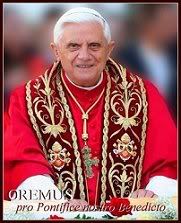 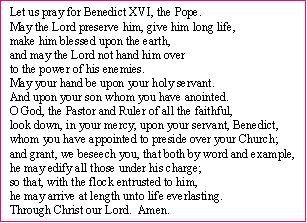
* * * * * * * * * * * * * * * * * * * * * * * * * * * * * * * * * * * * * * * * * * * * * * * * * * * * * * *
Posted today in the preceding page:
The Pope's message to the Meeting at Rimini - L'Osservatore Romano editor Giovanni Maria Vian calls attention
to the Pope's message conveyed by Cardinal Bertone addressing the theme of the 29th edition Comunione e Liberazione's annual
weeklong events promoting friendship among peoples; and a re-post of the Pope's message (translated).

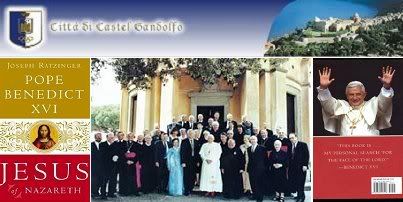 This article in today's Avvenire confirms Andre Tornielli's newsbit in the preceding page clarifying the topic of
This article in today's Avvenire confirms Andre Tornielli's newsbit in the preceding page clarifying the topic of
this year's Ratzinger Schuelerkreis seminar, but differs about the opening date. Elio Guerriero is a theologian who was
a former editor of the Italian edition of Communio, and was the Italian co-translator with Ingrid Stampa of the
first volume of JESUS OF NAZARETH.
The Pope 'studies' the death of Jesus
by Elio Guerriero
Translated from

August 28, 2008
The annual reunion of Pope Benedict XVI with his former students, who make up the so-called Ratzinger Schuelerkreis,
takes place this year in Castel Gandolfo from August 30 to September 1.
Two issues will be discussed at this year's seminar by the thirty-plus participants and their invited resource
persons: the historicity of Jesus and the consciousness he had about his death.
Two evangelical exegetes have been invited to lecture - Martin Hengel and Peter Stuhlmacher, both experts on Jesus
and emeritus professors of the University of Tuebingen where Joseph Ratzinger taught in the mid-1960s. {Tuebingen
has separate faculties for Catholic theology and for Protestant theology.]
The seminar, which thus takes on an ecumenical significance, would help the Pope look deeper into the two issues
(which have been much disputed among Biblical scholars), in the light of the second volume of his JESUS OF NAZARETH.
In the introduction to the first volume which came out last year, the Pope defined the historico-critical method as
one of the fundamental dimensions of modern exegesis which has allowed a deeper knowledge of Scriptures.
But on the other hand, the distinction between the historical Jesus and the Christ of faith that some exegetes have
made can be pernicious.
Against the unbridgeable distance that some scholars would see between history and theology about Jesus Christ,
the Pope cites Rabbi Jacob Neusner. Displacing the focus of the exegetes, Neusner says that the history
of Jesus matters only because and insofar as Jesus was recognized as the Son of God by his disciples,
and is adored as such by Christians.
It is along the same lines that Martin Hengel has studied proto-Christian historiography. In his inaugural
lecture as a professor in Tuebingen, entitled 'The Son of God" (Paideia, 1984), Hengel showed the profound
link between the history of Jesus and Christian faith. Thus, he deduced that it was important not only to
re-evaluate the historicity of Jesus, but also to pay new attention to the theological intentions of the evangelists
and the other authors of the New Testament.
At the end of his work, Hengel summarizes his conclusions thus: 1) the expression of the historico-critical
method is wide-ranging but problematic - it cannot be accepted without reservations; 2) historical
reconstruction and interpretation necessarily lead to a simplification of facts that are basically complex;
3) the writings collected in the New Testament are the oldest such sources that form the basis of the teachings
on which the Church rests.
Hengel then extended his studies to the Gospel of John, in which he worked with Stuhlmacher. One may deduce
from this that the focus of the Schuelerkreis seminar will be on John's Gospel and his presentation of
the death of Jesus, which Joseph Ratzinger/Benedict XVI has long placed at the center of his theological vision.
The studies by the Hengel and Stuhlmacher go towards reconciling the results of historico-critical exegesis and
the demands of the faith.
Jesus's question to his disciples in Caesarea Philippi - Who do you think I am? - tells us that the Master
of Nazareth wished to convey to his disciples the correct view of him and his mission.
His approbation at Peter's answer - "You are the Christ, the Son of the living God" - shows that Jesus
was aware of his death and that he interpreted it in terms of the suffering servant spoken of by Isaiah,
who had said that the servant offered his life in expiation for the many. Defeated and humiliated he might
be in the eyes of Israel and other peoples, he was, in fact, in the
closest of relationships with God.
Likewise, the destiny of Jesus, as the Risen Lord then explained to the disciples at Emmaus, corresponds
to the will of God as manifested in Scripture. It was necessary that the Christ undergo all the sufferings
he did in order to enter into glory. Thus, the death of his Son was very much part of God's plan, and Jesus
was fully conscious of this.
As Luke, in particular, points out, Jesus, from his childhood on, had placed obedience to the Father at
the top of his priorities, and once he reached adulthood, he did not retreat from that moment for which
he had come to earth. This concept is fundamental for the Christian faith.
Luke tells us that Jesus went forward freely to face his death and that it was precisely because of
this that his sacrifice was so pleasing to God. This, too, is the reason why his death represents
salvation for mankind.
According to the Pope, the death of Jesus is itself already illuminated by flashes of the Resurrection.
Thus, his death is the fulcrum of the Eucharistic sacrifice and every liturgical celebration.
Robert Taft has written: "According to the New Testament, the true liturgy of the followers of Jesus
Christ is the Lord incarnated as the Redeemer who gave himself in obedience to the will of God."
St. Paul then adds another fundamental thought: Christian liturgy generates Christ within us. That is
why the Pope says every believer is a contemporary of Christ, and more, that Christ is our friend, and
familiar to us.
In Benedict's view, Jesus is not just a historical personage, a just man and outstanding preacher from
the past, but the Son of God who is so today, yesterday and for all time. And that is why the faithful
can be alongside him in full trust, thanking him for his sacrifice and speaking to his heart.
It is this line that most probably will be taken at both the coming Bishops Synod on the Word of God
and the second volume of the Pope's book on Jesus.
 A second related article in Avvenire today is a review of the book Ratzinger professore which
A second related article in Avvenire today is a review of the book Ratzinger professore which
is coming out in Italy next month. The review focuses on Joseph Ratzinger's lifelong friendship with
the greatest theologians of our time, including Protestant theologians.
Professor Ratzinger,
a friend to Protestants
by FILIPPO RIZZI
Translated from

August 28, 2008

A previously little-known Ratzinger, 'a man of limpid simplicity', seen through the privileged eyes of
his former students: from his initial emergence in academe as a theological 'enfant prodige' at the
University of Bonn, through his succeeding professorships in Muenster, Tuebingen and Regensburg;
from the years of Vatican-II to his election as the Successor of Peter and the seminars at Castel
Gandolfo with his Schuelerkreis.
That is an overview of the book Ratzinger professore which will come out next month (San Paolo,
210 pp, 17 euros), the result of research and interviews by journalist Gianni Valente [who writes
primarily for 30 Giorni and Avvenire].
Valente put together hitherto unpublished facts about Joseph Ratzinger the professor and theologian
from interviews with many former students, as well as former teachers, of the future Pope - among
them Alfred Läpple, Peter Kuhn, Redemptorists Viktor Hahn and Réal Tremblay, Werner Böckenförde, Martin
Trimpe, down to the man who was the future CDF Prefect's last academic assistant in Regensburg,
the Salvatorian Fr. Stephan Otto Horn [current president of the Ratzinger Schuelerkreis], and one of
Professor Ratzinger's last doctorate students, the American Jesuit Fr. Joseph Fessio.
The book reveals Joseph Ratzinger's passion for the topics that have always interested him most -
eschatology, ecclesiology, Christology - and his focus on theological milestone thinkers like Augustine,
Martin Luther, John Henry Newman, and even the pioneering Protestant scholar-theologian Wolfhart Pannenberg.
The reader will be most struck by the wide-ranging vision of the young theologian Ratzinger and the way
he confronted the most sensitive issues that faced the Second Vatican Council, in his capacity as theological
consultant for the then Cardinal of Cologne, Joseph Frings.
The book also treats Ratzinger's friendship with the leaders of the 'nouvelle theologie', Yves-Marie Congar
and Henri de Lubac.
Of particular interest are the pages devoted to Ratzinger's theological solidarity during Vatican-II
with his older [and at the time, far more renowned] German colleague Karl Rahner, and his friendship
with the Swiss theologian Hans Kueng, which was interrupted by Kueng's subseuent public positions
against the Magisterium, disputing even the doctrine of papal
infallibility.
The central part of the book focuses on the year of protests, 1968, and on the 'calm and gentle' style -
never polemical nor inciting to rupture - with which Joseph Ratzinger faced the Marxist-inspired student
uprisings.
In a way, the book, which is presented like an album of memories and testimonials, allows us to appreciate
the friendships made by the Bavarian theologian and the reciprocal esteem from distinguished colleagues
like Hans Urs von Balthasar, the evangelical Karl Barth or the political theologian Johann Baptist Metz.
It presents a Ratzinger who 'never regretted Vatican-II' while remaining faithful to the traditional
Magisterium of the Church. And one whose studies reveal a great leaning towards ecumenism.
It is particularly interesting that Ratzinger's scholarly circle - among which were the future cardinals
Scola, Ouellet and Schoenborn - often included Protestants.
The book then leads towards better-known parts of Ratzinger's biography: the birth of the Bavarian
theologian's international best-seller Introduction to Christianity, based on lectures he gave in
Tuebingen; his initial participation in the post-conciliar theological magazine Concilium,
and his subsequent defection, along with Balthasar and De Lubac to set up the journal Communio;
as well as his admiration for the theologian later made cardinal, Leo Scheffczyk.
It is a book that allows us to fathom a little-known Ratzinger and explains why his students yesterday
and his listeners today - in words quoted by his former mentor Alfred Läpple - "when they drop the pen and
look at you while you speak, then it means that perhaps you have touched their hearts."
 To keep things together, here's another Avvenire story, this time about a Ratzinger book from 40 years ago.
To keep things together, here's another Avvenire story, this time about a Ratzinger book from 40 years ago.
 40 years since
40 years since
'Introduction to Christianity':
A book that maps out
Benedict's Pontificate
by GIACOMO SAMEK LODOVICI
Translated from

August 27, 2008
This summer marks the 40th anniversary of the first publication of Introduction to Christianity by
Joseph Ratzinger, a text to read and re-read, which, in my opinion, is his absolute masterpiece.
Among the many themes it treats, let us recall a few. For instance, Ratzinger is well aware that the threat
of uncertainty weighs not uncommonly on the faith of even the great saints.
But he points out that the non-believer, does not live without doubts: as much as he may forcefully take on
a positivistic- materialistic attitude, "the secret uncertainty whether positivism could possibly
be the last word never abandons him."
Besides, when someone affirms a radical atheistic anthropocentrism, then "man limits himself to recognizing
only his own work, constrained at the same time to consider himself the product of merely casual evolution,
a factum like any other", and then claims to be able to 'transform himself into whatever he wishes' and
that 'it should not seem impossible any longer to make himself God", with all the consequences that we know:
totalitarianism, genetic manipulation, cloning, etc."
The text also anticipates the themes of the Regensburg lecture.
It criticizes fideism, which is "the retreat of truth from reason to take refuge in the field of
pure devotion, pure faith", a retreat which much resembles that of ancient religions which crumbled
in the face of Greek philosophy (and for other reasons).
Well, "the Christian religion should not expect a different fate if it ever accepts a similar
detachment from reason."
Therefore, it was not by chance that the Christian message, during its initial spread and elaboration,
penetrated the Greek world. But if the God of the philosophers is Logos (Reason), the Christian faith
re-conceived it in a new way: not as an impersonal being that never comes near to man, but "agape,
the power of creative love."
In short, all existing things were conceived by a Consciousness which is creative freedom, and each of us
can say (overturning the Cartesian formula) 'Cogitor, ergo sum" - "I was thought of, so I am'.
Moreover, not only is "the Logos of the universe, the original creative thought, at the same time,
love"; that "Jesus has really unfolded God for us". In him, God became "flesh of our flesh, bone of
our bone. God is one of us." Such a God is a "love that loves even me" and is "immune from any transience,
from every selfish obfuscation" and so, "makes life worthy of being lived."
Further, "insofar as he is the Crucified One, this Jesus is Christ the King" - and "his royalty is
in having given himself to men". So, if already "an entire universe was wasted for the sake of preparing
a place for man....God gave himself in order to lead to salvation that speck of dust that man is".
And if Jesus is the ideal man, then man is most himself 'the nearer he is to others... he comes to himself
by coming out of himself' in love.
Finally, the resurrection of Christ is "love being stronger than death" and "if he resurrected, then
we too will resurrect" - namely, man is not annihilated by death because he is loved by God. In fact,
"if every love desires eternity, God's love does not simply desire eternity but is eternity".
In short, "there is redemption in the world: this is the firm trust that sustains the Christian and
convinces him even now that it is worth it all to be Christian."
[Modificato da TERESA BENEDETTA 30/08/2008 01:46] |
|
 29/08/2008 02:27 29/08/2008 02:27 |
|
| | | OFFLINE | | Post: 14.791 | Registrato il: 28/08/2005
| Utente Gold | |
|
 Pope to visit Albano Laziale
Pope to visit Albano Laziale
before ending summer stay
at Castel Gandolfo
VATICAN CITY, August 27 (Translated from Apcom) - Pope Benedict XVI will make a brief pastoral visit to
Albano Laziale near Castel Gandolfo the day before he returns to the Vatican to mark the end of his summer
sojourn.
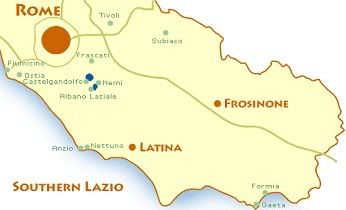 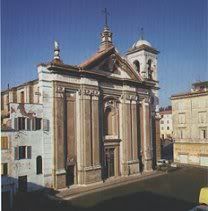
On Sunday, September 21, the Pontiff will celebrate Mass at the Cathedral of San Pancrazio, where he
will consecrate a new altar. He will then return to Castel Gandolfo in time to lead the noontime Angelus.
The ancient town of Albano Laziali rises on the Colli Albani, hills of volcanic origin - the town and
the hills both take their name from the nearby Lake Albano. Albano Laziale is actually nearer another
volcanic lake, Lake Nemi.

The town is one of the so-called "Castelli Romani" (the others are Frascati, Grottaferrata, Marino,
Albano, Ariccia, Genzano, Nemi, Rocca di Papa, Rocca Priora, Montecompatri, Monte Porzio Catone, Colonna) -
all founded in the middle ages by Popes and rich Roman families as their countryside residences.
[Modificato da TERESA BENEDETTA 30/08/2008 01:48] |
 29/08/2008 07:25 29/08/2008 07:25 |
|
| | | OFFLINE | | Post: 14.795 | Registrato il: 28/08/2005
| Utente Gold | |
|
 'Regensburg reopened dialog with Islam':
'Regensburg reopened dialog with Islam':
Interview with the Papal Nuncio to Arabia
Translated from

August 28, 2008
One of the speakers at the Rimini meeting yesterday was Archbishop Paul Hinder, Apostolic Nuncio to Arabia,
who spoke on 'Christians in the Arab World' in a special encounter session. He gave this interview afterwards.
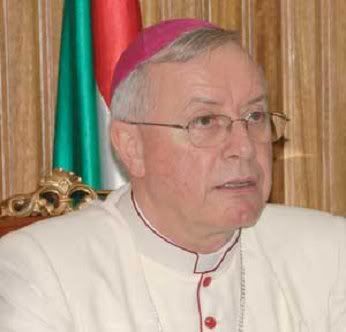 Mons. Hinder, we know that after the Holy Father's address in Regensburg, many Muslims reacted
Mons. Hinder, we know that after the Holy Father's address in Regensburg, many Muslims reacted
negatively, even if there were a few voices who did not join the chorus. How is the Pope considered
today in the Muslim world?
There continue to be many repercussions, in a negative sense, as well as paradoxically positive ones.
A certain mistrust of the Pope continues to be widespread in many areas, particularly with respect
to the relationship that the previous Pope had established in the Muslim world.
But I am strongly convinced - since I often have proof during cultural encounters - that the
Regensburg address has been most useful for reinforcing inter-religious dialog and make it more realistic.
It has also led to a kind of examination in depth of the idea of inter-religious dialog itself
that would not be taking place if Regensburg had not happened.
I have the impression that the preceding climate was based on a relationship limited to indefinite
reciprocal tolerance and on the basis of vaguely well-intended values.
But Benedict XVI has the power to say things clearly without looking right or left (politically).
I think this is the right attitude. Better reciprocal knowledge of each other is inseparable from
the strong affirmation of one's identity.
Moreover, the steps that the Pope has taken towards Islam after Regensburg have all been particularly
significant signals.
Excellency, you bear witness to Christ in a place like Saudi Arabia which is considered by
the Muslim community to be a land totally consecrated to the prophet Mohammed and therefore
unable to tolerate the presence of Christians. How can a Christian do anything in such conditions?
Whenever I ask myself this question, I always think back on how St. Francis dealt with it - he gave
witness through works. I am profoundly convinced that the numerous signals that come from a Christian
life which is lived authentically cannot pass unobserved.
Let me give an example. A Year and a half ago, during a reception in a Muslim country, I met a Muslim
ambassador who told me, "Now that finally I am face to face with a bishop in flesh and bone, I want
to ask you something I have had in mind for a long time: when a catastrophe happens anywhere
in the world, why are Christians always the first to go to the aid of others?" And I told him:
"The virus was passed on to us by the founder of our religion."
I didn't say more, but then he told me that he wasn't the only one, that in fact, many Muslims wondered
over this about Christians.
We Christians certainly have our vices, we are sinners like everyone else, but we have the great power
of testimony, especially when it simply manifests itself through our actions.
I, in commenting on the theme of this Meeting in relation to my position and to the situation
of Christians in Muslim countries, would say that despite being 'nobody' in those societies, we have
been protagonists in deed without beating our breasts about it, and it is just this attitude of humility
which compels the attention of the observer.
How would you characterize the present state of Muslim-Christian relations?
That's a question that is really very difficult to answer because the relationship changes subtly depending
on the country. Just as we must do with the recent events in India, we must distinguish the territory,
population and culture that have anything to do with the presence of Christians.
In Arabia, there have been various episodes of violence inflicted on the Christian population in the past,
but the phenomenon has become attenuated lately. Above all, because the Christians in Arabia do not
represent any force that could be a potential danger to the State. They don't have economic power
(they are mostly overseas workers) nor political power (being resident aliens) and clearly, they
do not constitute a socially relevant mass.
It's different in Egypt, for example, where Catholics and Copts generally belong to the wealthier
class. It's the same thing in Lebanon.
That is why I have to repeat that it's best to examine case by case to see the causes of friction among
different religions and cultures.
Sometimes it is too easy to make analogies, but as one can see even in Italy, we have numerous forces
that are far from friendly to the Church and Christianity, before we even speak of Saudi Arabia.
Personally how do you deal with the tragic episodes of violence against your fellow Christians?
I always have to consider what should be my reaction as a bishop, beyond the great sorrow that I feel
as a person. To react in a Christian way means not to respond in the manner that one was offended.
Perhaps politicians react by pitting violence against violence. I, as a bishop, certainly cannot do that.
The Christian way is to create reciprocal trust among peoples.
More generally, how are Westerners seen in the Muslim world?
Even here, one must proceed cautiously when answering. For example, there is a cultural elite in
the Muslim world who understand quite well the differences in the public roles of the different Western
leaders. But it often happens that because Muslims believe in an indissoluble union between religion
and public institutions, the common mindset finds it hard to distinguish a political representatives
from a religious leader. Many Muslims see the president of a European or other Western republic,
for instance, as a Christian authority as well. And that explains why there are misunderstandings about
some laws passed in the West that the Muslims consider to be an invasion of the religious sphere.
[Modificato da TERESA BENEDETTA 30/08/2008 01:57] |
 29/08/2008 13:45 29/08/2008 13:45 |
|
| | | OFFLINE | | Post: 14.797 | Registrato il: 28/08/2005
| Utente Gold | |
|

The Holy Father met today with
- Cardinal Christoph Schoenborn, Archbishop of Vienna.
The Cardinal is a member of the Ratzinger Schuelerkreis and will presumably
take part in the annual reunion-seminar that starts tomorrow in Castel Gandolfo.
There were no other announcements from the Vatican Press Office today.
OR today.
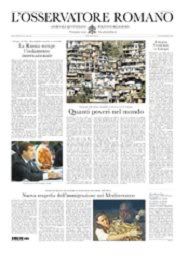 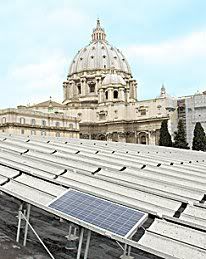
No papal stories or photos in an issue heavy with international news even in the inside pages.
The photo goes with a story about the solar panels being installed to provide energy for lighting
and heating of Aula Paolo VI. The main story is about Russia getting the backing of China and other
former Soviet republics in recognizing the independence of two breakway Georgian regions.
The second main story is a World Bank report on the dramatic increase in the number of global poor,
while a front-page editorial looks at the current economic stagnation in Europe. There's a story
about new drownings of illegal immigrants bound for Europe from Africa, and about the ongoing
fight of the church in India against social discrimination.
This just in, on the situation that most concerns the Holy Father and the Vatican these days:
 Indian authorities say they have
Indian authorities say they have
'put an end' to violent anti-Christian
activities by Hindu fanatics in Orissa


BHUBANESHWAR, India, August 29 (Translated from ASCA-AFP)- Indian authorities have given assurances
that they have put an end to violent activities by Hindus against Christians in the eastern Indian
state of Orissa, for which it has been criticized by several governments, including the Holy See
and Italy.
The Prime Minister of Orissa, Naveen Patnaik, said the situation in Kandhamal, epicenter of the violence,
'is rapidly coming back to normal" and that "encounters in the other zones are totally under control".
Last Sunday, Pope Benedict XVI condemned the violence that has already caused 11 deaths, mostly Christians.
The Italian government has announced that the Foreign Ministry has asked the Indian ambassador to Italy
for a meeting on Monday to demand "incisive' action on the part of New Delhi to stop the 'unacceptable'
acts of violence against Christians in India.
Patnaik spoke in Bhubaneshwar, capital of Orissa, where Australian missionary Graham Staines and his two
young sons were burned alive in 1999, for which a Hindu extremist was convicted. The new wave of anti-
Christian violence started with a nun burned alive and another one gang-raped in Orissa last week.
Notwithstanding Patnaik's assurances, Fr. Dominic Emmanuel, spokesman of the Catholic Archdiocese of Delhi,
said that the priests and nuns in Orissa continue to fear for their lives.
"They are hiding in the jungle, because they are getting no protection from the police," he said.
Today, thousands of Catholic schools all over India, as well as schools run by other Christian
denominations, closed down in protest against the violence, which Fr. Emmanuel called "the worst
in recent years".
Hundreds of homes have been burned, while the police have orders to shoot any offender on sight
in an attempt to stop the violence which erupted after the assassination of a Hindu religious
leader and five of his followers last weekend allegedly by a Maoist group. Hindu fanatics used it
as a pretext to turn against Christians once more.
Last night, Indian Prime Minister Manmohan Singh directed Patnaik to "act immediately to stop the violence".
Sandro Magister has a post today that gives an overview and analysis of the situation in India,
which I am posting in NEWS ABOUT THE CHURCH, along with an AsiaNews analysis by an Indian priest-
sociologist who teaches in Mumbai, and John Allen's commentary in his weekly column. The most important
considerations are pointed out in this brief analysis:
The risk for religious freedom
by Domenico Rosati
Translated from

August 28, 2008
Pope Benedict XVI has used the clearest and most measured words to denounce deplorable killings and
a spiral of violence against Christians and their work in a region of India where non-Hindu religious
communities appeared to have taken root without excessive traumas - or none that were visible.
But what is taking place on the Indian subcontinent is, in fact, tragic and complex, a situation
that cannot be understood easily, much less settled, from the outside.
An analysis is needed that encompasses all factors in play, avoiding any unilateral and simplified
perspectives, which raise new barriers instead of laying down bridges of understanding and dialog.
Some comments about the events in India have sounded like a broken record - referring to a clash
of cultures, such as that underlying Islamist extremism, to apply to a question that is seen as a new
and unprecedented emergency.
The ingredients are certainly there on the cultural level and in terms of political uses, in which
the targets for violence are the symbols of a religious and social presence that raises no battle
standards but carries on according to a dynamic of charity and human promotion.
But one risks losing a sense of the profound drama inherent in what conversion to the Christian
faith and its message of brotherhood and equality of all men represents to those who have been
anchored to a 5,000-year world view marked from the very beginning by the incommunicability
among dissimilar castes in an established hierarchy.
Once more in the course of history, the Gospel of Jesus has upset the thinking and the rules of
a constituted order, and once more, the reaction has been persecution and death for Christians.
Very likely this is what Benedict XVI meant when he said the Church is caught between "missionary
commitment and the national anxieties". Let us examine the two aspects.
The Church's missionary commitment does not include nor tolerate - and has not done so since the end
of colonialism - aggressive proselytism, which some Protestant denominations have manifested
in India and other places.
As for 'national anxieties' - such as the perceived threat to Hindu tradition and culture from
the Christian teaching on the equality of all men - the Church searches, within each particular
situation, for conditions that can be used to avoid bloody consequences but permit a mutual search
for coexistence and even collaboration.
In this context, one cannot fail to see the contradiction between the summary recourse to violence
by Hindu extremists and the vaunted democratic character of modern India, as it emancipated itself
from the British empire and constituted itself with Mahatma Gandhi's non-violence as a guiding principle.
It is true that the development of democracy in areas that were subjected to colonial domination
has a tempo and a course that is different for every country and very different from the experience of the West.
But if Indian leaders share universal democratic values - among them, religious fredom, which includes
the right to change one's religion - then those who can and should, must work to bridge the gaps,
not to widen them.
Democracy cannot be exported by military force, and the course of patient, trustful dialog, which
must start from dissimilar points to converge in a common concept of humanity, has neither been
frequented, much less explored.
A ruling class which claims to be democratic, such as that which now rules the destinies of
a subcontinent in the midst of burgeoning economic and cultural growth, cannot fail to note -
or should be helped to do so - the need to construct civil relations which respect the conscience
of its citizens. No one has the right to demand that someone give up a religion freely chosen.
When cultures meet, each one receives something from the other, and nothing remains as before.
Between missionary commitment and the cultural anxieties of peoples, this historical moment should
be seized to make a decisive transition for India.
[Modificato da TERESA BENEDETTA 30/08/2008 02:09] |
 29/08/2008 16:23 29/08/2008 16:23 |
|
| | | OFFLINE | | Post: 14.799 | Registrato il: 28/08/2005
| Utente Gold | |
|
 On the memorial of the martyrdom of John the Baptist today, Vatican Radio takes the occasion to review statements
On the memorial of the martyrdom of John the Baptist today, Vatican Radio takes the occasion to review statements
by Benedict XVI on the persecution of Christians. Although the connection is not directly stated, it is obviously
pertinent to what is happening in India.
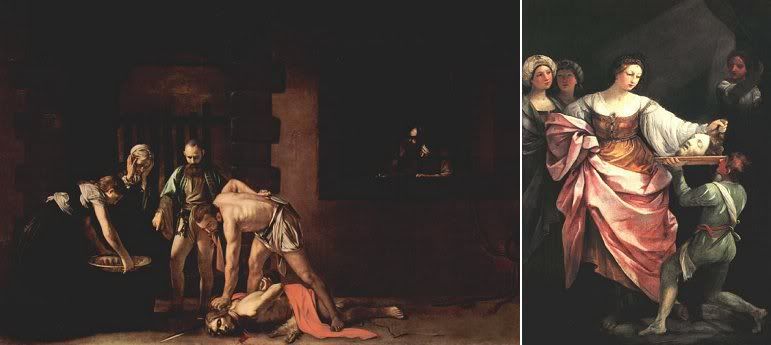 'The Beheading of John the Baptist', Caravaggio, 1608, Oil on canvas, 361x520 cm, St. John's Co-Cathedral, Valletta, Malta
'The Beheading of John the Baptist', Caravaggio, 1608, Oil on canvas, 361x520 cm, St. John's Co-Cathedral, Valletta, Malta
'Salome with the head of John the Baptist', Guido Reni, 1630-1640, Art Institute of Chicago
'The history of the Church
has never lacked persecution'
Translated from
the Italian service of

Today is the liturgical commemoration of the martyrdom of St. John the Baptist. Pope Benedict XVI has pointed
to the first witness to Jesus Christ as an example of one who proclaimed clearly the truth of evangelical
love "without fear or reservation, never yielding to the world's conditioning". Sergio Centofanti reports.
"The history of the Church has never lacked for persecution", says Benedict XVI, "but it is precisely persecution
that becomes the source of mission for new Christians... (because) the truth of love cannot be silenced".
Thus, he said in his Angelus message on June 24, 2007, John the Baptist proclaimed the truth without fear:
"An authentic prophet, John bore witness to the truth without compromises. He denounced transgressions
of the commandments of God, even when the protagonists were the powerful. Thus, when he accused Herod
and Herodias of adultery, he paid with his life, sealing with martyrdom his service to Christ, who is
the embodiment of Truth."
John the Baptist did not seek martyrdom, the Pope points out in his Angelus message on March 25, 2007,
in the same way that Christian martyrs throughout the ages only wished to bear witness that "the love
of Christ is stronger than violence and hatred."
"They did not seek martyrdom, but they were ready to give their lives to remain faithful to the Gospel.
Christian martyrdom is justified only as the supreme act of love for God and one's brothers."
In an earlier Angelus message on December 26, 2006, the Pope entrusted to John the Baptist's
intercession "all those who, following his example, introduce the justice of the Kingdom of God into
the world".
"With special spiritual closeness, I think of those Catholics who keep their loyalty to Peter's Chair
without yielding to compromises, at times at the cost of serious sufferings. The whole Church admires
their example and prays that they may have the strength to persevere, knowing that their tribulations are
springs of victory, even if they may seem to be failures for the moment."
In his Angelus message on December 26, 2007, the Pope said that the Christian revolution consisted in
forgiving one's persecutors and loving one's enemies - which is possible only if we allow ourselves
to be shaped by the Spirit which, in union with Christ, transforms death to life:
"Christian martyrdom concretizes the victory of love over hatred and death. Let us pray for those
who suffer because of their loyalty to Christ and to his Church. May the Most Blessed Mary, Queen of
Martyrs, help us to be credible witnesses to the Gospel, responding to our enemies with the disarming
power of truth and charity."
**********************************************************************************************************
The above reportage by Vatican Radio reminds me how media - even Catholic media - generally under-report, or even fail
to report on the Pope's Magisterium unless it has anything to do with topical social issues. In other words, when the Pope
speaks on Catholic belief in general, what he says is generally considered to be not newsworthy.
Even a news agency like AsiaNews which is attached to a Vatican department (the Pontifical Institute for Foreign Missions)
reports events primarily for their secular news interest and only secondarily for their religious significance.
One can see that, in how they report the Pope's Angelus messages, Wednesday catecheses and homilies - they always lead off
with the topical part, generally the Pope saying something about the international situation or a major catastrophe, before
reporting the strictly homiletic part of his discourse.
I believe both aspects of the Pope's statements should be reported, but reported separately - so that the 'purely' spiritual
aspect of his Magisterium does not get overshadowed. Vatican Radio provides a very good model for doing so.
Here, for instance, is how they marked the Memorial of St. Augustine yesterday, August 28:
Benedict XVI on St. Augustine:
He taught that to find himself,
man must encounter God-Love
Translated from
the Italian service of

August 28, 2008
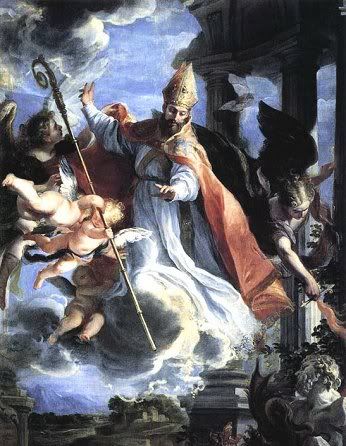 'The Triumph of St. Augustine'
'The Triumph of St. Augustine'
Claudio Coello, 1564, Museo del Prado, Madrid
The Church today remembers St. Augustine, Bishop of Hippo and Doctor of the Church - a figure to whom
Benedict XVI is closely bound, and to whom he dedicated five catecheses earlier this year during
the Wednesday General Audience, as Sergio Centofanti reports, quoting from those catecheses [in which
the full statements under quotation marks are taped excerpts from the Pope's catecheses].
"A man of passion and faith, of the highest intelligence and tireless pastoral concern" is how Benedict XVI
has described St. Augustine.
Born in 354 in Tagaste, in present-day Algeria, he converted after "a long and tormented interior itinerary".
He sought the truth using pure reason, but then understood that reason and faith cannot be separated
nor placed in opposition to each other.
Believe in order to understand, and understand in order to believe, he famously said.
"Believe in order to understand: believing opens the way to enter the doors of truth... but inseparably,
understand, see the truth in order to find God and believe."
Man is a great enigma and a great abyss, St. Augustine wrote, and he can only discover who he truly
is by encountering God.
"The presence of God in man is profound and at the same time mysterious - he can be recognized
and discovered in our most initmate being. 'You don't need to get out,' Augustine says, 'just turn
back into yourself; truth resides in the inner man; and if you should find that your nature is changeable,
then go beyond yourself...
"Reach out to the light of reason. Exactly as he himself underscored... at the start of 'Confessions',
his spiritual autobiography: 'You have made us for you, and uneasy is our heart until it rests in you'.
Then God will be as distant from you as you are from yourself."
God is love, St. Augustine wrote - and the encoutner with him is the only answer to the disquiet of
our heart. The Bishop of Hippo saw the whole of human history as a battle between two loves, under
the guidance of Divine Providence:
"This is his fundamental scheme, his interpretation of history: the struggle between two loves -
love for self to the point of indifference to God, and love of God to the point of indifference to self,
which means full freedom for oneself for others, in the light of God."
Sin, according to Augustine, is to seek love in the wrong places. He, who experienced his own weaknesses,
also experienced the infinite mercy of God, understanding that we all need a continuing conversion,
one that we must start anew every day:
"We always have need to be cleansed by Christ - who washes our feet - of a new conversion up to the very end.
We need the humility to recognize that we are sinners on a pilgrimage until the Lord definitively holds out
his hand to lead us to eternal life."
[Modificato da TERESA BENEDETTA 30/08/2008 02:14] |
 29/08/2008 19:19 29/08/2008 19:19 |
|
| | | OFFLINE | | Post: 14.801 | Registrato il: 28/08/2005
| Utente Gold | |
|
 Christianophobia must be fought
Christianophobia must be fought
like anti-Semitism and Islamophobia,
says the Pope's 'foreign minister'
Translated from
the Italian service of

The Holy See is fighting for religious freedom where it is violated in many parts of the world.
This was the heart of the intervention today at the Meeting in Rimini by Mons. Dominique Mamberti,
the Vatican secretary for relations with other states.
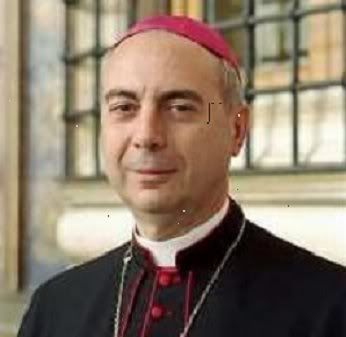
Christianophobia, Mons. Mamberti stressed, must be confronted with the same determination as
anti-Semitism and Islamophobia. He said Christianophobia consists today of much disinformation,
discrimination in terms of legislative measures, and persecution.
He also said it was important to help Christian refugees from Iraq and to normalize their status
in the European countries where they are now irregular immigrants. Here is a report by Debora Donnini:
Recent violence against Christians in India. The situation in Iraq, where only half of the one million
Christians residing in Iraq in 2003 still remain (the others have fled, mostly to other countries
of the Middle East). In 2007 alone, 21 missionaries killed in various parts of the world.
These were some of the facts recalled by Mons. Mamberti, who reiterated Pope Benedict's strong
determination that religious freedom be respected universally, and that John Paul II had called it
the basis of every other right, including the right to life.
Thus, Mons. Mamberti said, the main task of Vatican diplomacy is to protect and promote it.
"The religious nature of the Holy See and its universal calling ensure that it does not determine
its priorities on the basis of economic and political interests and has no geopolitical ambitions.
"The strategic priority of pontifical diplomacy is above all to assure favorable conditions for
the Catholic Church to exercise its mission as a church, as well as for the life of its members,
starting with the free exercise of their human rights and fundamental freedoms."
Mons. Mamberti reviewed the activities of the Holy See at the United Nations and in other international
institutions to defend religious freedom in its public and private dimensions.
Finally, he pointed out, that religious freedom does not have a merely social function, but that
its focus is to keep alive man's sense of God and the transcendent.
Reuters has picked up the story.
Vatican warns of growing Christianophobia
By Philip Pullella

ROME, August 29 (Reuters) - "Christianophobia" is a growing problem around the world and it must be fought
with the same determination as anti-Semitism or Islamophobia, the Vatican said on Friday.
Archbishop Dominique Mamberti, the Vatican's foreign minister, spoke in the wake of attacks against Christians
in India that have left at least 13 people dead this week.
Mamberti, addressing a conference in northern Italy, said religious freedom was a vital part of
international relations and human dignity.
"In order to promote this dignity in an integral way, so-called 'Christianophobia' should be
combated as decisively as 'Islamophobia' and anti-Semitism," he said.
This week in eastern India, thousands of people, most of them Christians, have sought shelter
in makeshift government camps, driven from their homes by religious violence.
Hindu mobs burnt more than a dozen churches and attacked Christians after a Hindu leader was killed.
Mamberti said the events in India made the issue of religious liberty today all the more pressing.
While Hindu groups accuse Christian priests of bribing poor tribes and low-caste Hindus to change
their faith, the Christians say lower-caste Hindus convert willingly to escape a complex caste system.
Pope Benedict has condemned the violence against Christians in Orissa but also deplored the killing
of the Hindu leader.
Italy's foreign ministry said it would summon India's ambassador to demand "incisive action" to
prevent further attacks against Christians.
Mamberti said 21 Catholic missionaries were killed in the world in 2007 and lamented that the Christian
population of Iraq was now down to about 500,000 from about one million before the U.S.-led invasion
in 2003.
Last month, Pope Benedict told Iraqi Prime Minister Nuri al-Maliki that minority Christians in Iraq
needed more protection.
The Archbishop of Mosul of Iraq's largest Christian denomination, the Chaldean Catholics, was kidnapped
in February and found dead two weeks later.
The Vatican has often expressed concern that conflicts in the Middle East are greatly diminishing
the Christian population in the areas of the religion's birth.
[Modificato da TERESA BENEDETTA 30/08/2008 04:38] |
 29/08/2008 21:45 29/08/2008 21:45 |
|
| | | OFFLINE | | Post: 14.803 | Registrato il: 28/08/2005
| Utente Gold | |
|
 Thanks to
Thanks to
 for this translation of the editorial in the September-October 2008 issue of Fideliter,
for this translation of the editorial in the September-October 2008 issue of Fideliter,
journal of the Fraternity of St. Pius X, whose cover is entitled '(The) Motu proprio one year after'.
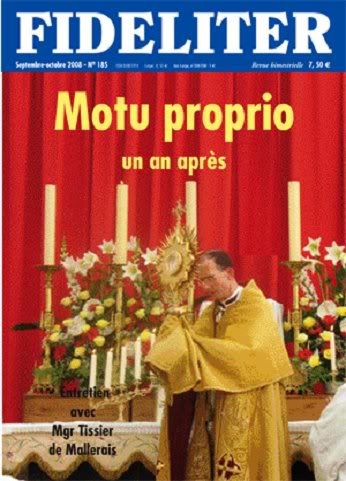
Evaluating the meaning of a movement:
An FSSPX prelate speaks out on 'Summorum Pontificum'
by Abbé Régis de Cacqueray †
Superior for the District of France
Fraternity of St. Pius X (Lefebvrians)

Over the past year, conflicting judgments have been issued concerning the Motu Proprio Summorum
Pontificum promulgated in July 2007. In hindsight it is possible to have a clearer picture.
It seems to me that the fundamental point to properly interpret it is to recognize it as the inauguration
of a movement on the liturgy and, hence, the Church itself (Lex orandi, lex credendi). Only by evaluating
the meaning and scope of this movement can one express a fair and justified judgment.
A movement must have a point of departure. What was the situation of the liturgy in June 2007?
The overwhelming, almost total domination of the so-called Mass of Pope Paul VI, and the almost
complete elimination of the traditional Mass which was regarded as totally obsolete if not outright
prohibited.
Responding to this situation were two very small groups. On the one hand, the "traditionalists"
who consistently said that the traditional Mass was not and could not be prohibited and who never
accepted the Mass of Paul VI and were severely persecuted by ecclesiastical authorities.
On the other hand the 'Ecclesia Dei' faction which, by the grace of a few exceptional laws, was permitted
under restrictive conditions to celebrate the traditional Mass on the premise of spiritual preference.
The first article of the Motu Proprio is clearly unacceptable: the traditional Mass and the Mass
of Paul VI are "two usages of the one Roman rite." But this is only a starting point.
However from this (catastrophic) state of things, the Motu Proprio goes on to pave the way much more
widely for the celebration of the traditional Mass than anything that had been done up until then.
“The Roman Missal promulgated by St. Pius V and reissued by Bl. John XXIII is to be […] given due honour
for its venerable and ancient usage”; “It is, therefore, permissible to celebrate the Sacrifice of the Mass
following the typical edition of the Roman Missal promulgated by Bl. John XXIII in 1962 and never abrogated”;
“Each Catholic priest of the Latin rite, whether secular or regular, may use the Roman Missal published
by Bl. Pope John XXIII in 1962”; “For such celebrations […], the priest has no need for permission
from the Apostolic See or from his Ordinary” etc.
Further (from the pope's letter): "I would like to draw attention to the fact that this Missal was never
juridically abrogated and, consequently, in principle, was always permitted.”
The Motu Proprio opens a door to the traditional liturgy for anyone, and they are many, who have been
unlawfully deprived of it for the past forty years.
This of course, does not concern those who have always known that the traditional Mass can not be
prohibited, and therefore have attended it with a clear conscience.
For this minority, the "traditionalists", to employ the Motu Proprio would be a step backwards:
it would admit that the Mass of Paul VI carries "the same dignity" as that of the traditional Mass
which they have always denied.
However, those who have known only the Mass of Paul VI and, given the propaganda, have been convinced
up until now that the traditional Mass was prohibited or bad; are now afforded access to this Mass
through the Motu Proprio and may begin to discover its riches.
This is the essential meaning of the movement launched by the Motu Proprio: A possibility for all
baptized who have been deprived of it for decades, to see for the first time the traditional liturgy
of the Church and get re-accustomed to it - a gradual but humanly necessary beginning, at least
in terms of the liturgical crisis.
The French bishops (in particular) who do everything to block, restrict, and distort the Motu Proprio,
were not mistaken.
Therefore let us not ourselves be mistaken.
[Modificato da TERESA BENEDETTA 30/08/2008 02:29] |
 30/08/2008 05:57 30/08/2008 05:57 |
|
| | | OFFLINE | Post: 3.299 | Registrato il: 23/11/2005
| Utente Master | |
|
Pastoral challenge: Encouraging French Catholics to make room for God
By John Thavis
Catholic News Service
VATICAN CITY (CNS) -- Pope Benedict XVI is traveling to France in mid-September, making a four-day visit that is loaded with events and charged with pastoral challenges.
The Sept. 12-15 trip was designed primarily to commemorate the 150th anniversary of the Marian apparitions in Lourdes, a southern French town that has become one of the world's most popular pilgrimage sites.
But the pope will spend the first day and a half in Paris, speaking to political and cultural leaders, meeting with priests and seminarians, and celebrating Mass with the lay faithful.
For the 81-year-old pope, it will be a trip to the heart of an increasingly de-Christianized Europe, an area where, as he once put it, the "great churches seem to be dying."
The pope wants to encourage a revival, and his schedule offers him several possibilities:
-- In meetings with civil and cultural leaders on the trip's first day, he is likely to defend the legitimate voice of religion in today's secularized European culture.
-- By personally commemorating the anniversary of the Lourdes apparitions, the pope will have an opportunity to evoke the long tradition of Marian devotion in France and explain its relevance today.
-- The papal events in Lourdes, a place where millions of sick pilgrims go to pray every year, will highlight the church's solidarity with the suffering.
-- His three meetings with French bishops -- two regional encounters behind closed doors and one national meeting with a public speech -- present occasions for a frank assessment of pastoral problems and strategies.
Those pastoral problems are real, and numbers tell a somewhat bleak story.
Although officially more than 75 percent of the population in France is Catholic, participation in local parish life has declined steeply over the last 50 years. Studies have shown that probably no more than 12 percent of French Catholics attend weekly Mass, and a majority of Catholics go rarely or not at all.
The number of diocesan priests in France has plummeted almost 50 percent in the last 25 years, and the priestly vocations rate is one of the lowest in the world. The rates of baptism, marriage and other sacraments also have declined steadily.
To church leaders, perhaps even more disturbing than French religious practice, or lack of it, are attitudes. A World Values Survey in 1999 showed that 56 percent of the French people did not believe in the concept of sin, nearly 60 percent said churches do not give answers to moral problems, and 62 percent said they did not receive comfort or strength from religion.
Pope Benedict has set his sights on these kinds of challenges from Day One of his pontificate. In sermons and speeches, he has argued that a life without faith is ultimately empty and unfulfilling, and that the evidence of such unhappiness is all around us.
In France, he is likely to make the point that simple faith -- like that of St. Bernadette Soubirous, the young Lourdes visionary -- is still relevant in the 21st century.
The pope was working on his speeches for the French trip over the summer and in mid-August gave a hint of what was on his mind. Marking the feast of the Assumption , he spoke of the value of "pure and simple faith" in the modern world.
The life of Mary, in particular, he said, can inspire Christians to live their daily lives "oriented toward the beatitudes." Faced with all the false happiness in modern society, he said, people can learn from Mary to "be witnesses of hope and consolation."
The pope sees the sanctuary of Lourdes as a place where the church carries out its Gospel of hope in a very concrete way, helping relieve the burdens of individual sufferers and the families who care for them.
At a Rome conference earlier this year to mark the Lourdes anniversary, he said a society that did not show compassion to its sick and suffering was "a cruel and inhuman society."
Citing his latest encyclical, "Spe Salvi" (on Christian hope), he went on to say that families, especially poor families dealing with a member's illness, risk being "swept asunder" in communities that value only productivity.
In France, the pope also may remind society of its duty to help relieve the loneliness of the sick and dying. He has warned that such isolation has contributed to the growing acceptance of euthanasia; in France, there has been a strong push for the decriminalization of euthanasia in recent years.
Here, too, the pope can point to the church's own efforts to bring spiritual and physical healing and, in the process, reinforce his point that Christianity is lived, and spread, more by witness than by arguments.
As on previous trips abroad, the pope's strategy appears to be to raise these broader themes -- Christian hope, the faith as love in action, and the need for moral truths and religious values in a materialist society -- and make them resonate with his audience.
French Catholics probably will not receive a papal dressing-down or a lecture on Mass attendance. In the pope's view, it's not just a question of making time for the church in their weekly schedules, but making room for God in their lives.
|
 30/08/2008 14:06 30/08/2008 14:06 |
|
| | | OFFLINE | Post: 1.522 | Registrato il: 27/11/2005
| Utente Veteran | |
|
A little bird told me that Papa's house in Pentling now has a new guard dog. Actually, Chico e-mailed me!!!! hee hee hee! Apparently he's called Leo von Almanach and is a long-haired, black Alsatian. He gets on well with Chico, which is vital.
It seems that Ingo, the Golden Retriever, died some months ago. I don't think he was much of a guard dog, but he looked sweet and I'm sorry he has gone to the Happy Hunting Ground. The new dog, Leo, really IS a guard dog. I suppose that's a good idea now that so many people go to look at Papa's house. At least I now have prior warning - I'm a bit wary of dogs, being a cat person myself.
Looking for a pic of Leo.......Perhaps someone can find one for me? |
 30/08/2008 14:40 30/08/2008 14:40 |
|
| | | OFFLINE | | Post: 14.822 | Registrato il: 28/08/2005
| Utente Gold | |
|
Mary, there's a photo in the item posted in POPE-POURRI yesterday.
[Modificato da TERESA BENEDETTA 30/08/2008 14:47] |
 30/08/2008 15:44 30/08/2008 15:44 |
|
| | | OFFLINE | | Post: 14.825 | Registrato il: 28/08/2005
| Utente Gold | |
|
 No papal news stories or photos in today's issue of L'Osservatore Romano. And no papal schedule has been posted.
No papal news stories or photos in today's issue of L'Osservatore Romano. And no papal schedule has been posted.
But Vatican Radio confirms that the Ratzinger Schuelerkreis seminar-reunion of 2008 begins in Castel Gandolfo this
afternoon.
 The Pope and his ex-students
The Pope and his ex-students
to discuss the historical Jesus
and his Passion
Translated from the
Italian service of
 
The annual encounter between Pope Benedict XVI and a group of his former doctoral students known as the Ratzinger
Schuelerkreis begins this afternoon in Castel Gandolfo. As usual, it is a private event held behind closed doors.
More than 30 participants are expected, including Cardinal Christoph Schoenborn, Archbishop of Vienna (whom
the Pope received in a private audience yesterday).
Invited speakers are two Protestant Biblical exegetes, Martin Hengel and Peter Stuhlmacher, both emeritus professors
on the New Testament at the University of Tuebingen where Professor Ratzinger taught from 1969-1977.
There are two specific topics for the seminar: the relationship between the Gospels and the historical Jesus,
and the awareness that Jesus had of the redemptive significance of his death.
Tomorrow, morning, the Pope will celebrate the Mass with his ex-students. Sergio Centofanti reports:
What has become a traditional annual meeting between Joseph Ratzinger and his ex-students began in the 1970s
when he was a professor in Regensburg.
When Paul VI named the theologian Ratzinger Archbishop of Munich-Freising in 1977, his student circle thought
that the annual meetings would no longer be held. But their ex-professor thought otherwise and the annual
meetings continued.
The same thing happened in 2005 when he was elected Pope, when he immediately let them know everything would
go on as usual. The first Schuelerkreis reunion in Castel Gandolfo took place in September 2005.
Previous topics during the papal years have been Islam, faith and the Bible, and evolution. This year's theme
has to do with the second volume of Benedict XVI's JESUS OF NAZARETH, which will deal with the birth, infancy
and childhood of Christ, and his Passion, death and resurrection.
Benedict XVI has presented the Christ of the Gospels as the real Jesus, as the 'historical Jesus' which is
"much more logical and, from the historical point of view, even more understandable than the reconstructions"
made in the past decades, resulting in so many diverse interpretations of Jesus, just as there was among
the people 2000 years ago:
Even today it is so - many approach Jesus, so to speak, from the outside. Great scholars acknowledge
his spiritual and moral stature and his influence on the history of mankind, likening him to Buddha,
Confucius, Socrates and other sages and great historical figures.
But they do not arrive at recognizing his uniqueness. We are reminded of what Jesus said to Philip during
the Last Supper: "Have I been with you for so long a time and you still do not know me, Philip?"(Jn 14,9).
Often Jesus is considered as one of the great founders of religions, from whom one can take something to
form his own convictions. Then, as now, people have had different opinions about Jesus.
Then, as now, to us who are his disciples today, Jesus repeats the same question: "And who do you think
that I am?" Let us answer as Peter did: "You are Christ, the Son of the living God".
Homily on June 9, 2007
The death of Jesus and the ensuing birth of the Church, in a situation that appeared to be doomed to failure,
the Pope points out, can in fact be explained only on the basis of something extraordinary, "only as
a mystery of God", a mystery that is not easy to accept:
It is the tragedy of rejecting Christ, which today, as in the past, manifests and expresses itself
in so many different ways.
Perhaps the ways of rejecting God in our time are even more insidious and dangerous: from outright
rejection to indifference, from scientistic atheism to the presentation of a so-called modern
or post-modern Jesus. A human Jesus reduced in different ways to nothing more than a man of his time,
devoid of his divinity. Or a Jesus so idealized as to seem like a fairtytale character.
But Jesus, the true Jesus of history, is true God and true man, and tirelessly proposes his Gospel
to everyone, as a "sign of contradiction, so that the thoughts in many hearts may be revealed"...
Before him, one cannot stay indifferent. Even, we, dear friends, must always take a stand. What will
be our answer?
General Audience on January 3, 2007
An item from Apcom adds the following details:

...Prof. Hengel will speak on the historical figure of Jesus, with particular reference to the first volume
of Jesus OF NAZARETH.
Stuhlmacher will deal with known research about the death of Jesus.
"I will not refer to Luther nor to the Pope's book," he told Apcom. "I will be looking at the passages
in the Gospel where Jesus speaks about his death. Much of it has been the subject of disputes, and I will try
to show how I think they should be interpreted and understood."
Initially, the topic for this year's seminar, with the Pope's consent, was to have been Lutheranism - and
the hypothesis that the father of the Reformation understood the apostolic succession in a manner much less
anti-Catholic than successive historiography has made it out to be.
The seminar was to have explored the possible points of theological contact beween Catholicism and Lutheranism.
The news was misrepresented* in the British media (the Financial Times wrote that the Vatican intended
to 'rehabilitate' Luther), and it is believed this led to the change of focus, using the same resource persons,
the Lutherans Hengel and Stuhlmacher.
After the seminar, the Schuelerkreis will sit down with some 15 young theologians who are studying the thought
of Joseph Ratzinger/ Benedict XVI. This is part of the work of the Joseph Ratzinger-Pope Benedict XVI Foundation
that the Schuelerkreis established last year as a center for Ratzinger studies.
* The misrepresentation is presented in some items posted March 6 on Page 169 of this thread
freeforumzone.leonardo.it/discussione.aspx?idd=354494&p=169
after the March 3 initial item from Apcom that Luther was to be the focus of this year's Schuelerkreis seminar.
It is also summarized in this blog by Phillip Pulella which I missed at the time, but which is instructive for what
it says about the media:
Luther’s 'rehabilitation'
may have to wait
Posted by: Philip Pullella
FaithWorld

March 11, 2008
Is Martin Luther, the German monk who sparked the Reformation, going to be “rehabilitated” this year by Pope Benedict?
Some media say yes, the Vatican says no way.
Here is an interesting sequence of events that says a lot about how something can take on a life of its own, regardless
of whether it may be totally correct.
It all appears to have started on March 2, when ApCom, an Italian news agency, ran a three paragraph article,
merely saying that the Pope and some of his former PhD students (the so-called Ratzinger-Schuelerkreis), would discuss
Luther during their yearly summer encounter in August at the papal summer villa at Castel Gandolfo, south of Rome.
APcom said the seminar would discuss whether Luther “wanted a rupture … or intended to reform the Church but
without traumas”.
On March 5, two days after the APcom report, the Turin newspaper La Stampa ran a story with the headline
“Ratzinger reforms Luther:‘He had many Catholic ideas. The theologian Pope summons his students for a seminar
of study on the heretic.”
The article [posted on Page 168 of this thread] quoted Cardinal Walter Kasper, president of the Council for Promoting
Christian Unity, as saying the choice of topics was meant “to favour a climate of encounter with Protestants.”
The day after the article in La Stampa, the Times of London reported that “Pope Benedict XVI is set
to rehabilitate Martin Luther, arguing that he did not intend to split Christianity, but only to purge the Church
of corrupt practices.”
From there, the story took off, was repeated by some news organisations around the world, was the buzz on
the blogs, and even prompted an editorial critical of the Pope by the Financial Times, called “Papal indulgence -
Cosmetic changes cannot hide Benedict’s dogmatism”.
The Vatican itself finally weighed in on March 8, when Father Federico Lombardi, the Vatican’s chief spokesman,
told the Italian news agency Ansa, that the Financial Times editorial was “totally without foundation because
no rehabilitation of Luther is foreseen.”
The Ansa story went on to say that the specific theme of this summer’s meeting had not yet been finally decided.
What do you think about how the media covered this and do you think the Pope should “rehabilitate” Luther?
[Modificato da TERESA BENEDETTA 31/08/2008 07:40] |
 31/08/2008 03:54 31/08/2008 03:54 |
|
| | | OFFLINE | | Post: 14.830 | Registrato il: 28/08/2005
| Utente Gold | |
|

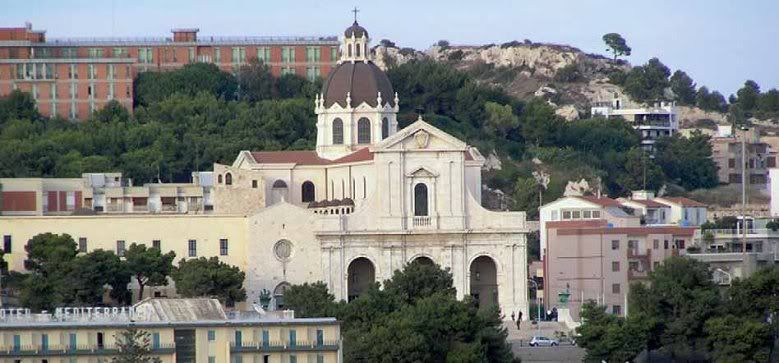 The Basilica of Our Lady of Bonaria in Cagliari.
Benedict XVI's Marian destination in Sardinia:
The Basilica of Our Lady of Bonaria in Cagliari.
Benedict XVI's Marian destination in Sardinia:
Where sailors stopped to see where the wind blew
by Mario Ponzi
Translated from
the 8/31/08 issue of

The subtle Marian weft that traverses the Magisterium of Benedict XVI - underlined by Archbishop Fernando Filoni,
deputy Secretary of State, in an interview after the Pope's visit to Santa Maria di Leuca and Brindisi - will soon
be enhanced by another highlight.
As we know, on September 7, the first Sunday of the month, the Pope will go to Cagliari to venerate the image of
Our Lady of Bonaria, thus concluding the celebrations for the centenary year of the proclamation of the Virgin
as the Supreme Patroness of Sardinia.
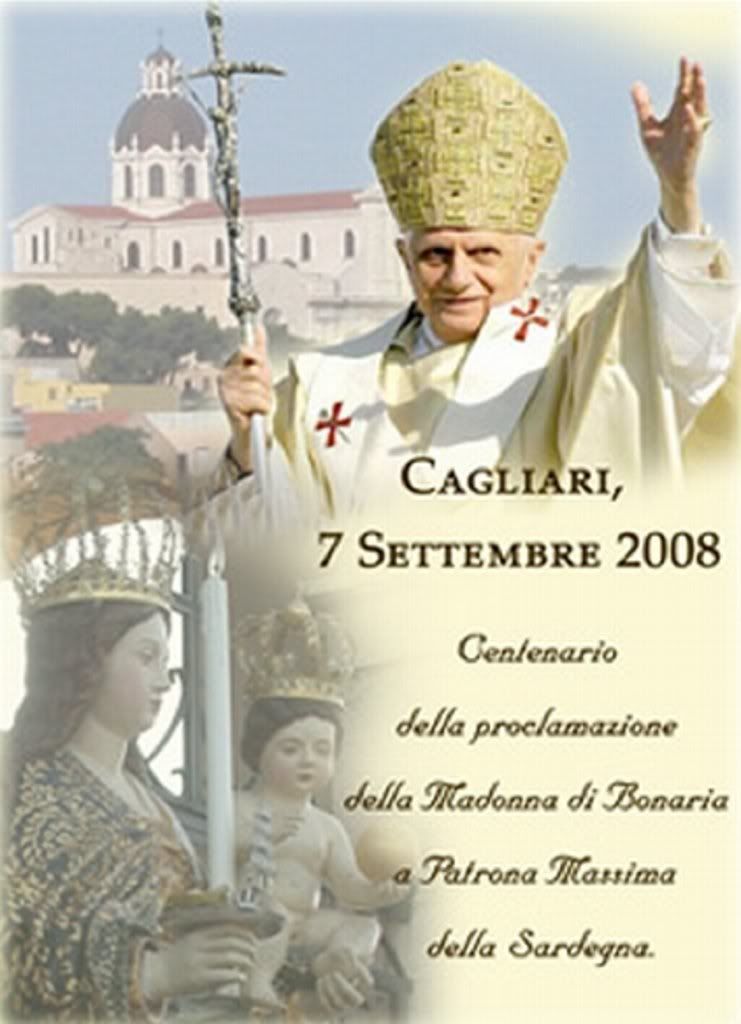
The celebrations began in September 13, 2007, the day on which, 100 years earlier, Pope Pius X conferred the title
on the 'Lady of the Sards'.
The story of this Marian statue, which has been the focus of more than seven centuries of the anxieties, concerns
and hopes of the peoples of the sea around Sardinia, is not unlike many that have been handed down in every corner
of the earth where there is a special place in the hearts of the faithful for the Mother of God.
Rivers of words are still being gathered these years in valuable volumes - the last just off the press, edited by
the committee for the centenary of the Marian Basilica - to tell the story with an abundance of details. So there is
nothing new to add that has not already been said or written.
But what is striking is that between the lines of the different authors who have undertaken the narration -
almost all of them strictly Sard - appears a Marian devotion that is truly rooted in the soul of the Sardinian
people, to the point of constituting the vital fabric of their most profound religious sentiments.
It is worth recalling an episode, remote in time but extremely significant in this respect. In the annals of
the island, one reads that on March 7, 1632, the three orders of the Sard Parliament established in 1421 assembled
in the Cathedral of Cagliari.
On that occasion, their members, in the name of the inhabitants of the island, pledged to remain faithful to
the truth of the Immaculate Conception of Mary. And this happened exactly 222 years before the dogma of
the Immaculate Conception was proclaimed by the Church.
Even today, this Marian vein profoundly characterizes the ultra-millennial faith of the Sards. The course of time,
the daily confrontation with atavistic problems that have never been resolved, the stupefaction in the din of
a modernism which has not succeeded in undermining very ancient roots -- which, even if wounded, continue
to provide vital lymph for the new generations - have not weakened the genuineness of the affection that links
the Sards to their "Lady of the Good Air (Bonaria)".
There is not a single embarkation leaving the port of Cagliari that does not carry an image of the Madonna of Bonaria.
Perhaps they no longer carry out the old rite of coming to the shrine before taking out to sea, in order to seek
the protection of the Virgin, or to find out the direction of the wind just beyond the port according to
the indications of a mysterious little boat that hangs from the ceiling in a corner of the church. But in the heart
of every sailor, that rite replays itself every time their prow points to the open sea.
From the sea 700 years ago came the beautiful wooden sculpture, carved from a carob trunk, 156 centimeters high
(about five feet one-and-a-half inches) - which shows the Virgin holding the Infant Jesus. It was around this statue
that the shrine of Bonaria was built.
The story is interwoven with that of the Mercedari order who have been on the hill of Bonaria since the 1300s.
They were first brought there by the Sard noble Carlo Catalano who, during a mission in Spain, had occasion to know
and appreciate the work of these priests, who were pledged to ransom Christians from slavery and captivity by
gathering alms and goods in kind to buy their liberty.
In 1335, King Alfonso of Aragon gave them the chapel which he had built on the hill of Bonaria to thank God
for his victory over the Pisans, whom they now controlled from the island.
And it was due to the zeal of a historical Mercedari, Fr. Francesco Sulis, that the report has come down to us
of that event which marked the journey of faith for the island of the four Moors.
In Father Sulis's account, written in 1867, he tells of a Spanish ship headed for Italy which found itself
in the midst of a furious tempest just off the Sardinian coast. It was a boat of light tonnage and the gigantic
waves would surely have swallowed it if the captain had not ordered all the cargo tossed overboard and whatever
else was not necessary for navigation.
After the last item was thrown off - an enormous chest - the sea calmed down. To their amazement, the sailors
noted that the chest was the only object that had not sunk. They tried in vain to recover it, but the chest
started to 'navigate' by itself, drawing the ship in its wake towards shore, without anyone controlling it.
It landed at the foot of the hill of Bonaria, where in the meantime, a small crowd had gathered to watch what
was happening at sea. Then, summoned by a boy, some Mercedari priests from the nearby convent came to the shore.
For them, it was a natural thing to bring the chest in.
Only then did they notice that the emblem of their order was inscribed on the chest. They brought it to
the convent on the hill and they opened it easily. Inside, they found the statue of the Madonna. They showed it to
the crowd which had grown by now. Everyone fell to their knees. It was the first act of veneration towards
Our Lady of Bonaria.
The events that followed have since been countless - of repeated miracles and the growth of popular devotion,
of the construction of a temple increasingly more worthy of housing the image, up to the pontifical proclamation
whose centenary is being marked.
The people of the sea, in particular, have a very special devotion to Our Lady of Bonaria. This became even more
marked after, one day, in front of the main altar of the old Basilica, there appeared a small ivory boat
hanging from a cord right in front of the statue of the Madonna.
It was said to be an ex-voto [offering in fulfilment of a vow] left by an anonymous pilgrim in thanks for being
saved from a shipwreck. The boat appeared to indicate by the position of its prow the direction which the wind
was blowing beyond the port. That was how sailors started passing by the Basilica first to check wind conditions
before heading out to sea. The indication appeared to be correct all the time. No one ever saw it move, but
nonetheless it always pointed in the right direction according to where the wind was blowing.
That boat still hangs there. Does it continue to indicate the wind direction? Perhaps. What it definitely tells
is the story of a profound devotion. That of the people of the sea of Sardinia.
[Modificato da TERESA BENEDETTA 31/08/2008 15:14] |
 31/08/2008 07:21 31/08/2008 07:21 |
|
| | | OFFLINE | | Post: 14.831 | Registrato il: 28/08/2005
| Utente Gold | |
|

Thanks to Beatrice's site

for the link.
Because of its presumptuous, condescending and ultimately offensive premise - that Pope Benedict XVI does not have enough drawing
power, so that the Church in France is really fearful his visit may be a popular flop - this article leaves a bad taste in the mouth,
but perhaps it will be typical of the local French coverage we must expect about the Pope's trip to France.
Also, the first part of the article is an exercise in BS, excuse the language, as I do not subscribe to a journalism of imagination,
even if it is plausible.
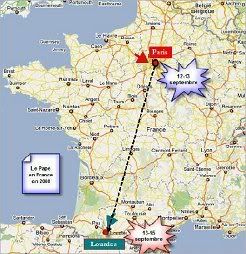 Nine months of preparation
Nine months of preparation
for Benedict XVI's French challenge
by Jean-Marie Guénois

27/08/2008
Less popular than John Paul II, Benedict XVI nevertheless is expected to draw [in the sense of 'obliged to draw']
some 500,000 persons altogether in Paris and Lourdes in mid-September.
In the cocooned silence of his office in his summer residence at Castel Gandolfo, Benedict XVI must be putting
the finishing touches to eleven addresses that he must give when he visits France on September 12-15.
The texts will be translated to Italian but the French-speaking and French-loving Pope is working directly on
his texts in French. He loves our language and uses it with ease. He is probably down to his final drafts after
having written out the essentials during his vacation in Bressanone in the South Tyrol.
Between prayer, walks and playing the piano, not to mention working on the rest of his book Jesus of Nazareth,
the Pope would have drafted the first version of his speeches for France, for the customary review by
the Secretariat of State. And on the basis of suggestions made, the Pope, being a scrupulous man of letters,
will refine and polish his final drafts.
It is said that Benedict XVI attaches a very special importance to his first visit to France as the Successor
of Peter. An associate member of the Academy of Moral and Political Sciences since 1992, few in Rome know
our country and our culture as well as he does.
Which makes his intimate circle believe that his address on September 12 at the College des Bernardins, right in
the Latin Quarter, before 700 representatives of the world of culture will be quite special. [The College is
a 13th-century Cistercian abbey recently restored to provide a center for cultural encounters and related
activities, which will be inaugurated on Sept. 4 but will not open to the public till Sept. 15.]

 Left, Elysee Palace; center, Notre Dame Cathedral; right, Invalides.
Left, Elysee Palace; center, Notre Dame Cathedral; right, Invalides.
At the same time, on both sides of the Alps, it is thought that the Pope's address to President Sarkozy earlier
that day at the Elysee Palace will be the first response of the Catholic Church to the famous address by
Sarkozy at the Basilica of St. John last December which revived what had been the dormant issue of secularity.
Which, the French side maintains, could also be a chance for the French President to bring things to a point.
However, the highest levels at the Vatican insist that Lourdes and the 150th anniversary of the Marian
apparitions in Lourdes to Bernadette Soubirous is the principal reason for this 'pastoral visit' by the Pope.
In effect, without Lourdes, this trip would not be taking place. The Pope's initial decision came in the first
months of his Pontificate, as early as July 2005. But only the Bishop of Tarbes-Lourdes, Mons. Jacques Perrier,
knew at first. He had written the Pope to present the plans for the Jubilee of the apparitions [a celebration
which will continue till December 8 this year).
The Pope quickly answered that he "had good hopes of being present personally" at the celebrations. The secret,
well-kept, led to several working sessions, of which the decisive one was last January, in Rome, when the Pope
met with representatives of the bishops' conference of France, led by Cardinal Andre Vingt-Trois, Archbishop of Paris.
Then the program had to be defined. Though everyone agreed that the trip should end with Lourdes, the first
stage was less definite. Strasbourg, where the European Parliament is, was considered but rejected. Likewise
Mont St. Michel, Angers and Evry.
However, Paris was 'unavoidable' for a first visit. Especially since President Sarkozy had expressed his hope,
when he was at the Vatican, that the Pope would start his visit in Paris.
And so it was decided. Starting in mid-June, large streamers announcing the visit began to appear on
parish walls, and an avalanche of yellow-and-white brochures were sent out. All of it capped by the personal
appeals of parish priests throughout the Ile de France [region in and around Paris] who told their flocks, before
going on vacation, that their first duty upon returning from their summer holidays would be to attend the Pope's
Mass on the Esplanade of the Invalides on Saturday morning, September 13, as well as the vigil on Friday night
in front of Notre Dame Cathedral.
The Catholic Church has been mobilizing 'uphill' as it had never done before. Betraying perhaps, without saying so,
the fear of a popular flop on the streets of Paris. The Archdiocese of Paris, in effect, knows that there is
such a risk.
How do they know? The organizers simply used a marketing firm to 'market-test' the image of Benedict XVI
in order to adapt its communications plan accordingly. Two representative panels - practising Catholics and
indifferent citizens - were surveyed which showed a veritable 'knowledge deficit' about the Pope in France,
even among the faithful. [But a 'knowledge deficit' does not necessarily translate into lack of interest!]
Thus, the anxiety, at least initially, to mobilize the troops.
But to see the serene smile today of Mons. Jean-Yves Nahmias, 51, an auxiliary bishop of Paris (one of five
who assist Cardinal Vingt-Trois), in charge of coordinating the Parisian ecclesiastic end of the visit,
they no longer fear.
An impression confirmed by Fr. Antoine Hérouard, secretary-general of the French bishops' conference: "We are
confident. The dioceses all feel concerned about the visit and they have mobilized throughout France."
But each one within the central team of 30 well-disposed Parisians who sacrificed their summer vacation
to prepare for the event with Mons. Nahmias, knows that it's not a done deal. They supervise 200 other
persons who are in charge of 10,000 volunteers who have been recruited to help out during the visit.
The enemy is not the Pope's 'marketing' image so much as the weather! The visit - which will last less than
24 hours in Paris - rests on two key events, both outdoors: his arrival by Popemobile at Notre Dame on
Friday afternoon (the perimeter will allow the presence of 40,000), and the Mass on Saturday afternoon at
the Invalides esplanade, which can accommodate 200,000.
It will be the same problem in Lourdes, over a 48-hour period, at which at least 200,000 people are also
expected. Torrential rain could spoil everything - and so one of the prayer requests in the monasteries that
are praying for the success of the visit is for good weather.
But the concept of 'open space' accommodation, in which no tickets are necessary for getting to the sites
also gives no idea of how many will participate. If the sun is out, the people may come, but they could also
decide not to come at all.
In Lourdes, a shuttle-bus system will permit anyone to reach the site conveniently. And in Paris, everything
has been planned to allow the most number of people to be able to 'see' the Pope.
On Friday afternoon, the entire area of the Latin Quarter around the College des Bernardins and Notre Dame,
will be provided with giant screens and loudspeakers to that everyone can follow the Pope's address to
the cultural world, the Vespers with the priests and religious in the cathedral, and his greeting to the youth
in the square in front of Notre Dame afterwards. Including, to begin with, the passage and arrival of the
Popemobile.
The following morning, the same arrangement around the Invalides, the one place in Paris which can accommodate
the most people while assuring them of optimal sight lines.
The possibility, seriously considered, of holding the Papal Mass at the Stade de France in St. Denis, was
rejected. the place, though spectacular, was deemed too small (normally, it can seat 80,000, but with
an altar-stage, that would be reduced to 65,000) as well as too restricted for an 'open' city visit.
Not to mention that mere rental costs and acoustical arrangements would have eaten up the 1.5 million euros
budgeted by the Paris archdiocese for the visit. A figure which may appear huge compared to the usual parochial
income where the clink of small change prevails over the rustle of bills. As it is, half the budget will go to
setting up the maxi-screens and their sound systems.
But the financial aspect does not seem to bother the organizers for the moment nor their enthusiasm. In both
Paris and Lourdes, confidence reigns.
In Lourdes, the jubilee is already drawing 40% more than the average pilgrim rate, and the budget for the Pope's
visit is part of the jubilee budget. In Paris, the diocese has put together a sponsorship committee which has
already raised 350,000 euros, half of its goal. The other half is expected to be covered by a marketing
innovation: a special telephone number will be given out that people may call, as in a telethon, to pledge
contributions by credit card, marking a first in fund-raising for the Catholic church.
 Signs of the papal visit ....
Signs of the papal visit ....
IN PARIS
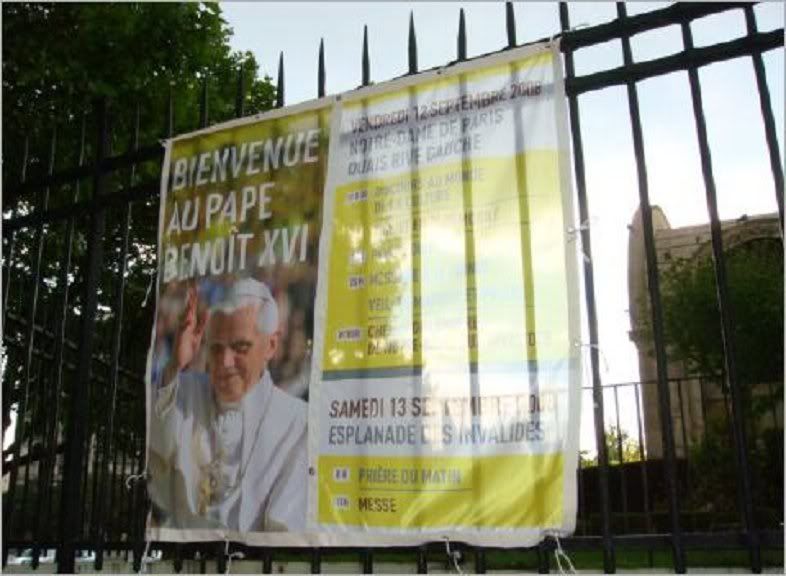 Thanks to a contributor to Beatrice's site
Thanks to a contributor to Beatrice's site.
IN LOURDES
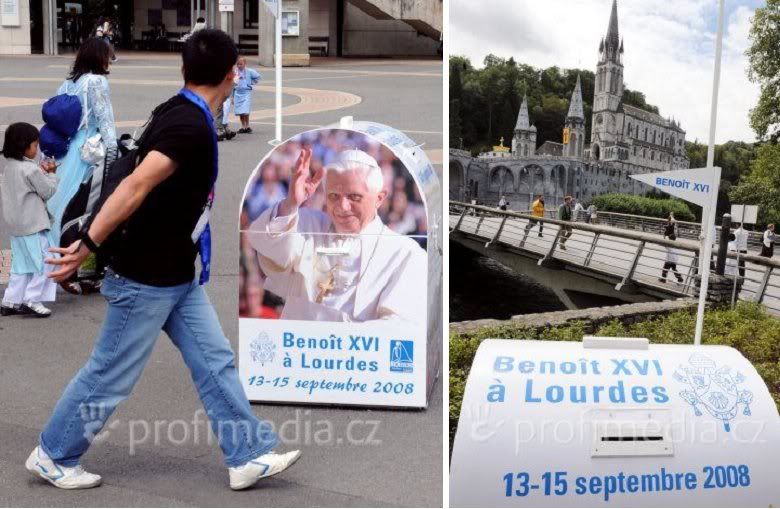 Thanks to Gloria in the main forum.
Thanks to Gloria in the main forum.
[Modificato da TERESA BENEDETTA 01/09/2008 00:35] |
 31/08/2008 15:35 31/08/2008 15:35 |
|
| | | OFFLINE | | Post: 14.833 | Registrato il: 28/08/2005
| Utente Gold | |
|
 ANGELUS TODAY
A full translation of the Holy Father's words at Angelus today has been posted in
ANGELUS TODAY
A full translation of the Holy Father's words at Angelus today has been posted in AUDIENCE & ANGELUS TEXTS.
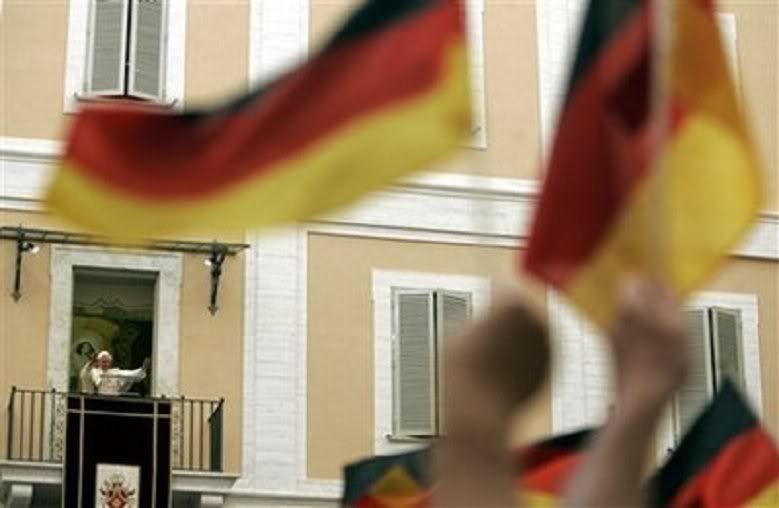 Flags in the foreground are German.
Flags in the foreground are German.
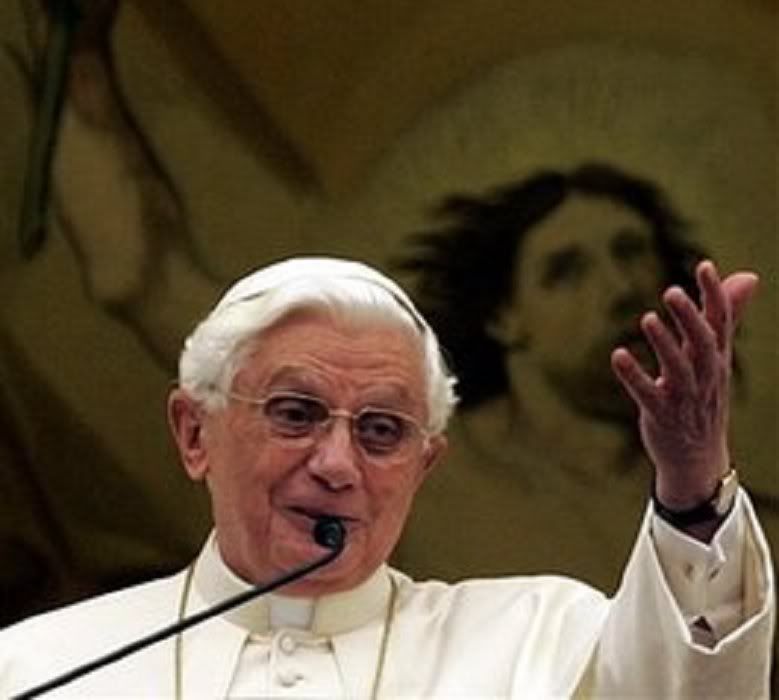
The Holy Father today reflected briefly on the Gospel today in which Peter, after his ringing profession of faith
in Jesus as the Son of the living God in last Sunday's Gospel, this time shows that his faith is still immature
and too much bound to the mentality of the world.
Pope Benedict XVI reminds us that when Jesus tells his disciples that he is going to Jerusalem to die, Peter opposes
his human logic to divine will, whereas Jesus asks that each Christian take up his own Cross to follow him.
Here is what he said in English:
In today’s Gospel, Jesus reveals to his disciples his coming passion, death and resurrection. He also
teaches us that, to follow him, we too must enter into the mystery of the cross.
Faithful obedience to God and loving service of our neighbour do not always come easily. But to embrace
the cross of Christ is to share in his victory.
May the Lord keep us in his love! I wish you all a pleasant stay in Castel Gandolfo and Rome, and
a blessed Sunday!
After the Angelus, he made a statement about the recent incidents of drowning in the Mediterranean of African
illegal immmigrants seeking to come to Europe in unsafe boats.
He called on governments in destination countries to be generous in dealing with the issue of illegal migration,
and on the goverments of the countries of origin to deal with the root causes of illegal migration.
In his greeting to Spanish-speaking pilgrims, the Pope had special words for the people of Cuba as they begin
celebrating the 400th anniversary of Our Lady of Charity of Cobre, object of the island-nation's most popular
Marian devotion.
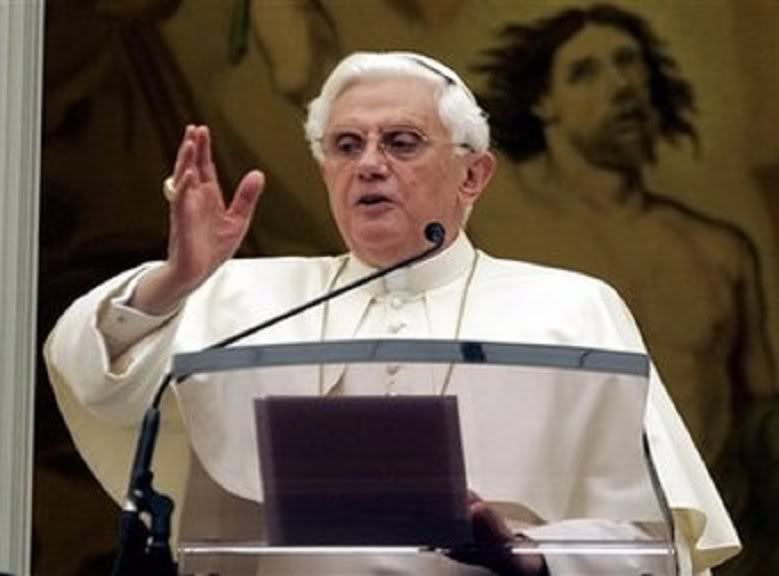

With the new wave of anti-Christian violence in India apparently under control in the past several days,
the Holy Father made no mention of the situation today.
However, continuing concern at the Vatican is evident in the front-page editorial in L'Osservatore Romano
today commenting on Cardinal Angelo Bagnasco's strong statements earlier in the week about the persecution
of Christians, and the publication of his full text.
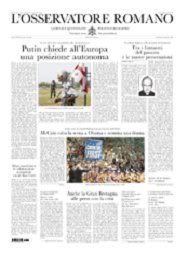 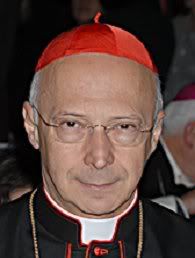
Cardinal Bagnasco on the international situation:
'Between the ghosts of the past and new persecutions'
The main stories on Page 1: Putin asks Europe to take an autonomous position in the coming emergency meeting
of the European Union on the crisis in Georgia; McCain steals the scene from Obama with his choice of Gov. Palin
to be his running-mate.
* * * * * * * * * * * * * * * * * * * * * * * * * * * * * * * * * * * * * * * * * * * * * * * * * * * * * * *
HELP!!!!
Can someone tell me why this page has a 12-inch width for the message area? All the other pages on this thread
are 'normal', and I have not used a picture wider than 9 inches - the maximum that the page will take so as not
to affect the line lengths. Yet some time yesterday, I found myself having to go back and re-spacing all my posts
because the lines were suddenly 12 inches long instead of 9 inches! Did I hit a button accidentally that reset
the width of the message area? If so, which one?
[Modificato da TERESA BENEDETTA 01/09/2008 03:44] |
 01/09/2008 15:11 01/09/2008 15:11 |
|
| | | OFFLINE | | Post: 14.852 | Registrato il: 28/08/2005
| Utente Gold | |
|

No OR today.
The Holy Father met with
- Ingrid Betancourt and her family.
- Mons. Vincenzo Paglia, Bishop of Terni-Narni-Amelia (Italy), with
Prof. Andrea Riccardi, founder of the Sant’Egidio Community.
Pope and former hostage
finally meet

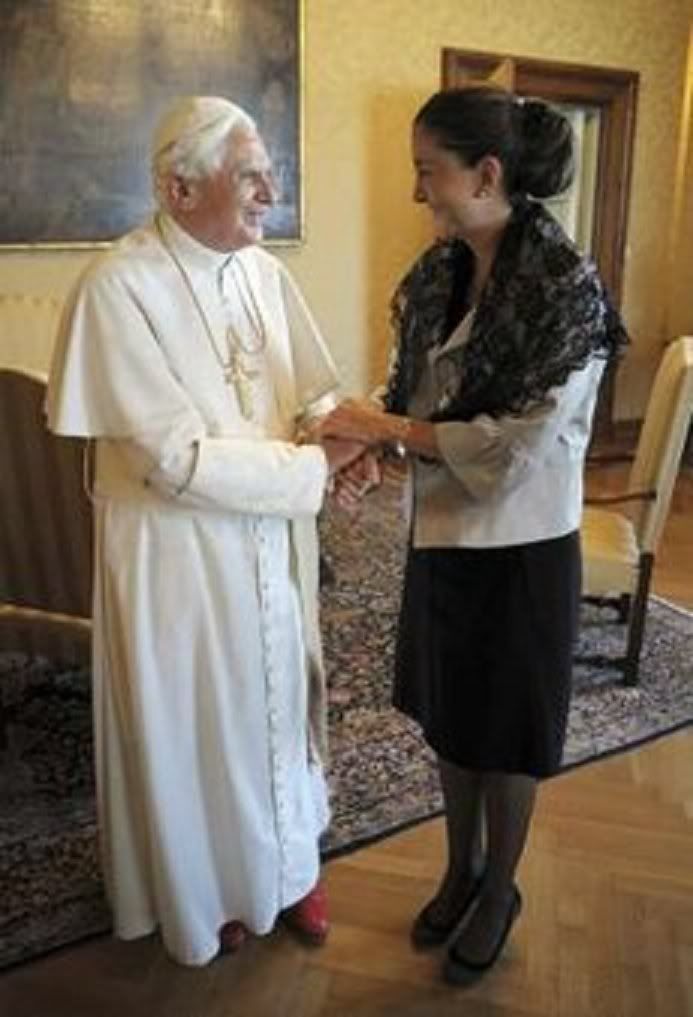
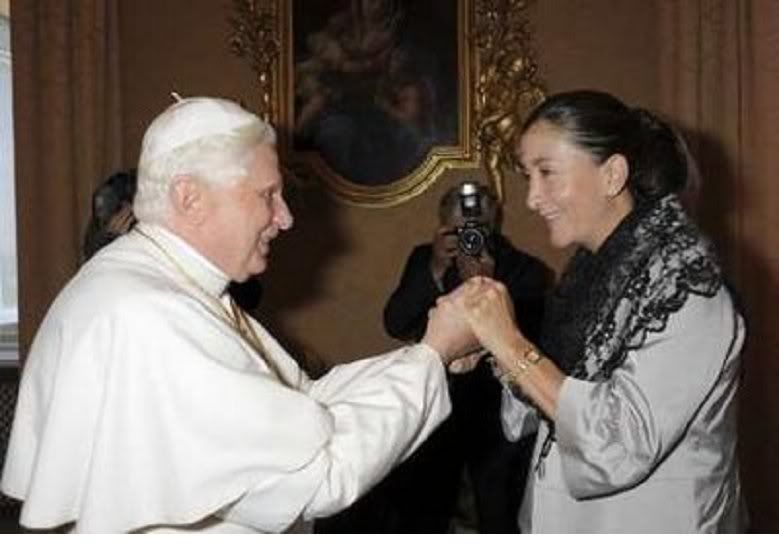
ROME, Sept. 1 (AP) - Former hostage Ingrid Betancourt met with Pope Benedict XVI on Monday at a papal summer
residence near Rome.
Betancourt, who was released July 2, had expressed a desire to meet with the pontiff. The former presidential
candidate in Colombia credited her religious faith with helping her survive more than six years of captivity
in the Colombian jungle at the hands of leftist rebels known as FARC.
The ANSA news agency said Betancourt was accompanied by her mother as she arrived at the Castel Gandolfo retreat
for her audience with the pope. It said the meeting lasted about 20 minutes.
A Vatican statement did not release details of the strictly private meeting. It said Betancourt had been
accompanied by her relatives. Betancourt was scheduled to appear at a news conference later in the day.
The Pope welcomed news of Betancourt's freedom in July. He had previously appealed for an end of kidnappings
in Colombia. Benedict had also met with Betancourt's mother at the Vatican in February.
The meeting with the Pope is the highlight of Betancourt's visit to Italy. She is also meeting with political leaders,
including the country's president, and visited the Sant'Egidio Community, a Rome-based lay Catholic group
that mediates world conflicts.
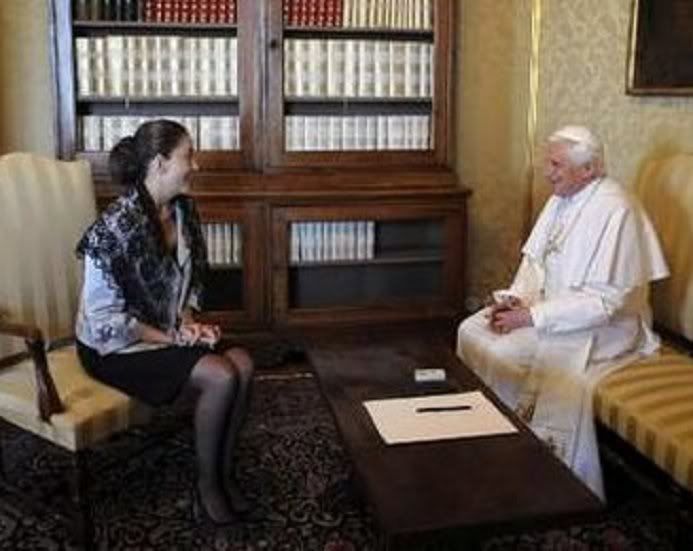 Betancourt says meeting the Pope
Betancourt says meeting the Pope
was 'a dream come true'
By ARIEL DAVID

ROME, Sept. 1 (AP))- Former hostage Ingrid Betancourt on Monday was able at last to thank Pope Benedict XVI, the man
whose voice she said reached deep into the Colombian jungle "like a light" to comfort her during captivity.
Betancourt, who was rescued in July by Colombia's military after more than six years in the hands of leftist guerrillas,
said her private audience with the Pope was "a dream come true."
"From my first moment of freedom I wanted to meet and embrace" him, she said at a news conference in Rome, during
which she was frequently on the verge of tears.
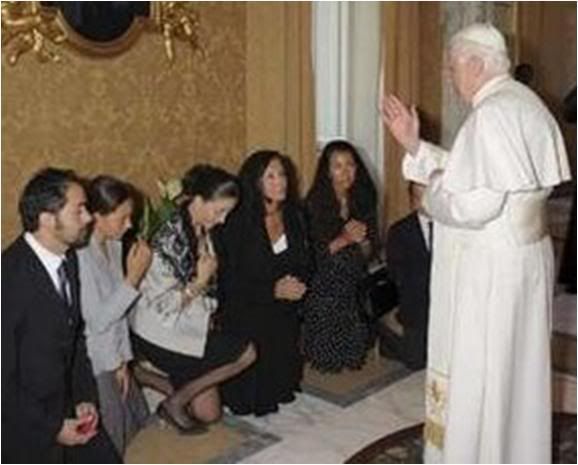 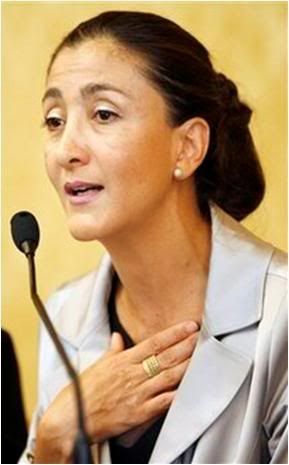
The former presidential candidate in Colombia credited her religious faith with helping her survive in the years
following her kidnapping by the Revolutionary Armed Forces of Colombia, also known as FARC.
She told Benedict that she found comfort in her Catholic faith and in the knowledge that millions of people in Europe
and across the world were calling for the kidnappers to free her and her fellow prisoners.
Betancourt told the Pope that once, after a daylong forced march between rebel camps in the jungle, she collapsed
in a hammock, exhausted and dispirited, only to switch on the radio and hear Benedict's voice speaking of her plight.
"It's hard to explain the psychological effect this has on a prisoner, what it meant to know we hadn't been
forgotten at a time when we thought we didn't exist," Betancourt said. "The voice of the Holy Father was like
a light."
Betancourt said she told the Pope about her distress for the hundreds of hostages FARC still holds and her concern for
Colombia's future after decades of civil war.
"The Pope is pained by the suffering of the prisoners," she said. "I know his prayers are also dedicated to obtaining
the freedom of all the prisoners and peace in my country."
Betancourt's eyes filled with tears as she made repeated appeals to the heads of FARC to lay down their arms and free
the remaining hostages.
"The world is watching you, the world is asking you to make space in your hearts for love and forgiveness, as there is
in my heart," she said.
Betancourt was accompanied by her mother and other family members as she arrived at the papal summer retreat of Castel
Gandolfo, near Rome, to meet with the Pope.
TV footage showed Betancourt, a black lace veil covering her head, as she shook hands with Benedict and smiled at him.
The Vatican spokesman, the Rev. Federico Lombardi, said the aim of Betancourt's trip was "to thank the Pope for
his prayer, his commitment, his remarks in favor of all the hostages and her personally."
Betancourt "was very moved, very grateful to have this possibility," said Lombardi. He added the private meeting
lasted about 20 minutes.
The Pope had previously appealed for an end of kidnappings in Colombia and had met with Betancourt's mother
at the Vatican in February.
After the audience, Betancourt told reporters she had not yet decided if she would return to Colombian politics, saying
she now wants to concentrate on helping her fellow hostages and all those who suffer around the world.
"I want to serve my country, but not necessarily in the political arena," she said.
While Betancourt is in Italy, she is also meeting with political leaders, including the country's president, and
she has visited the Sant'Egidio Community, a Rome-based lay Catholic group that mediates world conflicts.
Betancourt tells Pope
of 'miracle' in the jungle
By Robin Pomeroy

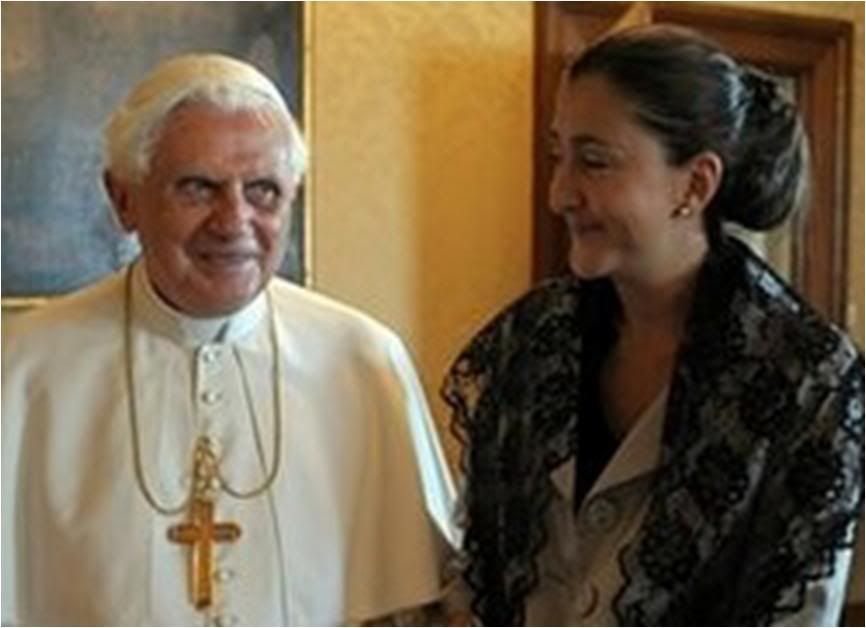
ROME, Sept. 1 (Reuters) - Freed French-Colombian hostage Ingrid Betancourt hugged Pope Benedict on Monday and told him
how she was overcome with emotion when she heard him appeal for her freedom on a radio broadcast during her seven
years of captivity in the jungle.
Betancourt, who was rescued by the Colombian military in July from the hands of the Revolutionary Armed Forces
of Colombia (FARC), was watery-eyed at a news
conference where she described her private meeting with Benedict hours before.
"The audience with the Pope was a dream for me, to meet a being of light, of humanity or a very high level of
human understanding," said Betancourt, who spoke of her intimate one-on-one conversation with the head of the Church.
"I didn't follow protocol because as soon as I walked in I embraced the Pope, and maybe you are not supposed to
embrace the Pope," she said of her meeting with him at his summer residence south of Rome.
The 46-year-old, seized by guerrillas while campaigning for Colombia's presidency, said Benedict became
a direct source of hope when, after a typical day of forced marching through the jungle, she heard him speak on
the radio.
"As soon as I switched the radio on, I heard the voice of the Pope who was saying my name. You cannot imagine what
this can mean to a person in my situation, a prisoner, to understand you have not been forgotten."
Pope Benedict made a number of appeals for her release and that of other hostages.
Although a Catholic, Betancourt said she had never read the Bible -- "a dusty old book" -- before her capture, but
then had the time to read it "20,000 times" and now considered it a life guide. "There's an instruction manual for
happiness and it's called the Bible," she said.
She told the Pope how she had prayed for a miracle, asking God not to free her but to send her a sign of when she would
be freed, something she felt was essential to save her from despair.
Soon after that, one of her captors told her some hostages may be released to a visiting group from an
"international commission." Betancourt was among the hostages freed in an operation which was, in reality,
conducted by the Colombian security forces.
"When I told the Pope this, he replied: 'He heard you because you knew how to ask. You didn't ask for a miracle
to be freed yourself, instead you asked to understand what was His will."'
When asked about her future plans, Betancourt did not rule out a return to politics in Colombia, but said
her priority was to form a group of people to work for the liberation of other hostages there and around the world.
* * * * * * * * * * * * * * * * * * * * * * * * * * * * * * * * * * * * * * * * * * * * * * * * * * * * * * *
Sorry for the delayed subsequent posts on Betancourt and her news conference. I had a serious PC problem right after my first post
this morning, and spent the rest of the day trying to have it repaired, ending up by having to buy a new PC, which means I had
to wait the whole day for them to transfer over my data of 10 years work (about 3.5 gigs) from the old to the new, etc. That is why
I have just logged on now to the Internet (about 9:30 in the evening, my time)....
* * * * * * * * * * * * * * * * * * * * * * * * * * * * * * * * * * * * * * * * * * * * * * * * * * * * * * *
Here's ZENIT's report on the Pope's other meeting Monday:
Pope meets with Sant'Egidio leaders
VATICAN CITY, SEPT. 2, 2008 (Zenit.org).- Representatives of the Community of Sant'Egidio presented to Benedict XVI the program for the 2008 Interreligious Prayer Meeting for Peace.
Andrea Riccardi, the community's founder, was present at Monday's meeting in which he personally informed the Pope of the event titled "The Civilization of Peace: Religions and Cultures in Dialogue." It will be held Nov. 16-18 in Cyprus.
Sant'Egidio organizes this meeting every year to keep alive the spirit of the World Day of Prayer called by John Paul II in Assisi 1986. Benedict XVI was present at the 2007 meeting in Naples.
Sant'Egidio is organizing the prayer meeting in conjunction with the Orthodox archbishop of Cyprus, Chrysostom II.
Marco Impagliazzo, the president of Sant'Egidio, and Bishop Vincenzo Paglia of Terni-Narni-Amelia, were also present at the meeting.
The 40-year-old community informed in a communiqué that in the meeting with Benedict XVI they also discussed "poverty in the world and the care of AIDS in Africa."
[Modificato da TERESA BENEDETTA 03/09/2008 16:44] |
 01/09/2008 20:27 01/09/2008 20:27 |
|
| | | OFFLINE | | Post: 139 | Registrato il: 26/09/2007
| Utente Junior | |
|
Holy Father meets Betancourt

![[SM=g27811]](https://im0.freeforumzone.it/up/0/11/10151015.gif)
|
 01/09/2008 20:57 01/09/2008 20:57 |
|
| | | OFFLINE | Post: 896 | Registrato il: 19/11/2005
| Utente Senior | |
|
|
 02/09/2008 04:52 02/09/2008 04:52 |
|
| | | OFFLINE | | Post: 14.853 | Registrato il: 28/08/2005
| Utente Gold | |
|
 Foundation to promote thought of Benedict XVI
Foundation to promote thought of Benedict XVI
announced at gathering of Pope's former students

CASTEL GANDOLFO, Italy, SEPT. 1, 2008 (Zenit.org).- A foundation devoted to the promotion of the thought of
Benedict XVI will be launched this fall in Munich.
The news was announced this weekend at the annual meeting of the “Ratzinger Schülerkreis” (Ratzinger’s
Circle of Students), composed of the Pope's former doctoral and postdoctoral students. The gathering, held at
Castel Gandolfo, ended today.
According to a press release sent out by Divine Word Missionary Father Vincent Twomey, a member of the circle,
this was the 30th meeting of the Schülerkreis since it was set up after then professor Joseph Ratzinger was named
archbishop of Munich and elevated to cardinal in 1977. Some 40 former students were present.
The final details of the newly established Joseph Ratzinger/Pope Benedict XVI Foundation were approved at
the plenary sessions, held under the chair of Cardinal Christoph Schönborn, the archbishop of Vienna.
The foundation will be publicly launched Nov. 12 in Munich.
The press statement explained that the foundation is devoted to "the promotion of theology in the spirit of
Joseph Ratzinger."
"The board of trustees," it added, "whose members include former students from Germany, Portugal, Ireland,
Benin, and the United States, reflects the international character of the Schülerkreis and the international scope
of the foundation’s outreach."
At this year's meeting, two Lutheran scriptural scholars, Martin Hengel and Peter Stuhlmacher - both professors
at the University of Tübingen, where Ratzinger taught in the 1960s - were invited to read papers in the presence of
the Pope.
The statement of the circle reported that the topic was "the historicity of the Gospel narratives and
the particular topic of Jesus’ consciousness of the significance of his own pending death."
It added that Benedict XVI, who is in the process of writing the second volume of his book Jesus of
Nazareth, took part in the "lively discussion [...] with the same frankness, humor, and clarity that marked
all his university seminars and colloquia."
For the first time ever, doctoral students who are researching the Pope’s theology were invited to meet the Pontiff
and his former students.
Some 17 young theologians presented their research projects at two sessions this weekend, which the circle said
marked "the beginning of a new generation of Ratzinger students."
MASS WITH THE SCHUELERKREIS
Translated from
the 9/1-9/2 issue of

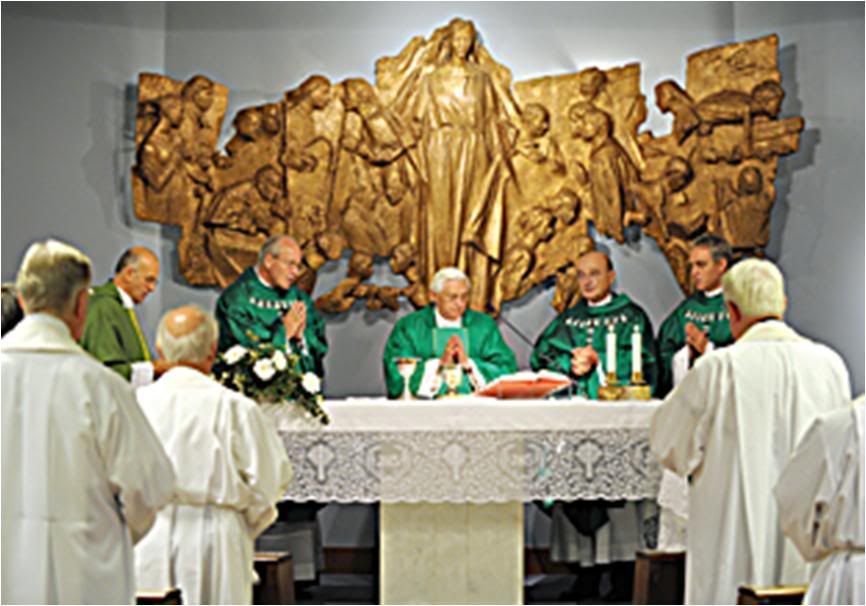 The Holy Father concelebrated Mass with some members of the Schuelerkreis at the Centro Mariopoli in Castel Gandolfo on Sunday.
The Holy Father concelebrated Mass with some members of the Schuelerkreis at the Centro Mariopoli in Castel Gandolfo on Sunday.
Cardinal Schoenborn delivered the homily, but the Holy Father delivered a greeting before the Mass began.
Both are published in the Sept. 1-2 issue of L'Osservatore Romano.
Greeting by the Holy Father
Dear brothers and sisters,
In the Reading today, St. Paul tells us that we need a renewal of the spirit to be able to recognize the will
of God. We cannot realize this renewal ourselves,w e cannot give it to ourselves, but we should be renewed.
This renewal is death and resurrrection. It can only take place in 'newness' worked by God himself by losing
ourselves in Christ, who draws us to him in the Holy Eucharist and which goes beyond the baptism which has made us
participants in his death and resurrection.
Thus, with this text by Paul, even what the Lord tells us in today's Gospel, that we can only take up the Cross
and follow him. This is not about a limited asceticism, but rather of a novelty that we can only receive
in communion with his death and resurrection.
At the start of this Holy Mass, we wish to pray to the Lord so that he may take away all that is old in us,
that he may break into our being closed in on ourself and our self-sufficiency, and that he may make us 'new'.
[Modificato da TERESA BENEDETTA 02/09/2008 13:43] |
 02/09/2008 14:06 02/09/2008 14:06 |
|
| | | OFFLINE | | Post: 14.855 | Registrato il: 28/08/2005
| Utente Gold | |
|

OR for 9/1-9/2/08:
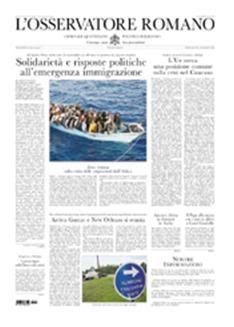
At the Sunday Angelus, the Pope calls for responsibility on irregular immigration:
'Solidarity and political responsibility in dealing with the immigration emergency'
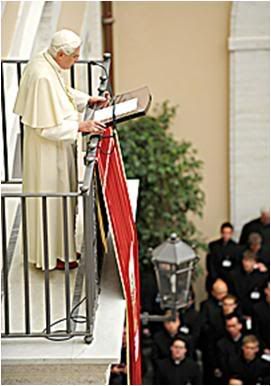 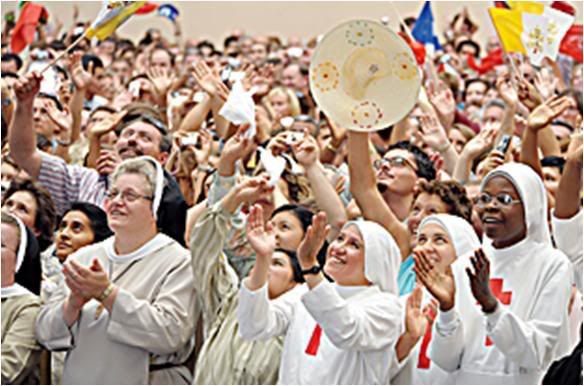 Other Page 1 stories: European Union seeks a common position on the crisis in Georgia; new immigrant drownings, this time
Other Page 1 stories: European Union seeks a common position on the crisis in Georgia; new immigrant drownings, this time
from Algeria; 'Gustav' empties New Orleans; more churches burned in Orissa, India; and the Pope's mass with his Schuelerkreis.
There are no scheduled events for the Holy Father today, and the Vatican Press Office has not issued any bulletins.
The Holy Father's prayer intentions for September:
The Holy Father's general prayer intention:
"That those who, because of wars or oppressive regimes, are forced to leave their homes and country may be supported by Christians in the defence and protection of their rights."
His missionary prayer intention:
"That, faithful to the sacrament of matrimony, every Christian family may cultivate the values of love and communion in order to be a small evangelizing community, sensitive and open to the material and spiritual needs of its brothers."
[Modificato da TERESA BENEDETTA 02/09/2008 18:56] |
 02/09/2008 14:52 02/09/2008 14:52 |
|
| | | OFFLINE | | Post: 14.856 | Registrato il: 28/08/2005
| Utente Gold | |
|
 Finally, someone in Italy's MSM has commented on the Vatican's call for an appropriate response in the West
Finally, someone in Italy's MSM has commented on the Vatican's call for an appropriate response in the West
to various examples of Christian persecution around the world, which have been largely ignored by the media and
therefore by public opinion.
After Benedict XVI's statements two Sundays ago, his 'foreign minister, Mons. Dominique Mamberti, spoke on
Christianophobia at the Meeting in Rimini, and Cardinal Angelo Bagnasco, president of the Italian bishops
conference, decried widespread silence in the West on Christian persecutions.
Killing Christians, from the Sudan to India,
raises no outrage, especially not from the UN
by Pierluigi Battista
'Particelle elementari' (column)
Translated from

September 1, 2008
How many examples must there be - and what torments endured by Christians persecuted in the world, with nuns
burned alive by Hindu extremists - while the Church calls for United Nations intervention to put an end to these
sporadic episodes of religious discrimination which Catholics call Christianophobia?
With all the woes that trouble the world, should we really be concerned about Indian villages burned to
the ground, of orphanages set on fire, of children chased into the jungle by groups of fanatics armed with knives?
Should we pay attention to the reports of Christian persecution in various parts of the world such as recently
detailed in Il Giornale?
Does anyone really think the conscience of the world can be touched by reports of Chinese bishops disappearing
for opposition to the regime; the 300,000 Christians swallowed into the void of North Korean society; the priests
and nuns who have been killed and dozens of missionaries, Catholic and Protestant, who have been killed in
ambushes that have bloodied southern Philippines (where a minority of militant Muslims have been waging guerilla war
since the 1960s; the killings in Indonesia of Christians whose only offense was to show the Cross?
In Saudi Arabia, Christians cannot build churches, risk death if they are found in possession of a Crucifix,
are under asphyxiating surveillance by the official vigilante force of so-called religious police, and are accused
(and summarily condemned) for so-called 'proselytism'.
Should the religious quiet of the world be bothered by such trifles? And is not whoever asks for rudimentary
reciprocity, at the very least, in freedom of worship (free churches and free mosques in free states) carrying on
a deleterious campaign that poisons inter-religious relations?
In the south of Sudan, Christians killed by slave-taking bands acting in the name of Islam now number at least
two million - yes, two million! - and no longer make the news. Not even in Darfur, where the carnage continues,
where millions lose their lives because of their religion and race, but where the United Nations 'prudently'
continues not to call it genocide.
In Nigeria, Muslim extremists have killed 20,000 Christians and destroyed at least 200 churches, but
the international community continues to look on and does not intervene in order not to 'upset'
the coexistence among peoples and religions! And it would be absurd - and dangerous for the peace of the world -
to even countenance the 'mistaken' notion of Christianophobia!
In Somalia, Sister Leonella, a sixty-year-old nun who had been too daring and 'fanatical' in thinking that
a center to care for abandoned and orphaned children would be useful, is murdered at the very gate of that
orphanage.
Christians are subjected to persecution, reduced to silence, caught in the near-impossibility of keeping symbols
of their faith hidden - in Egypt, Pakistan, Afghanistan, Iran, Yemen - but we are not supposed to make general
statements about them in order not to further inflame the enemies of religious peace.
And in order not to further burden the various offices and organisms of the United Nations, already so overworked
as not to be bothered with these trifles!
Am I right?
* * * * * * * * * * * * * * * * * * * * * * * * * * * * * * * * * * * * * * * * * * * * * * * * * * * * * * *
One can only compare the deafening silence from MSM, politicians , and leaders of other religions about outrages
to Christians, to the recent headlines, rivers of ink and tons of verbiage shown about the Buddhist monks of Burma
and the Tibetan protestors against China! About whom Benedict XVI and the Church were not and never silent.
Perhaps to underscore the selective interest of MSM in tales of human plight, depending on who the victims are,
compare the blanket coverage in the Italian media - rightfully - of the Pope's statements about the tragedy of illegal
immigrants to their lack of reporting of the statements last week by the Pope and Church leaders about Christian
persecution (the India episodes barely reported as well). Why? because illegal immigrants are a 'political' issue,
whereas Christian persecution can simply be taken for granted and ignored? And why should this be?
[Modificato da TERESA BENEDETTA 02/09/2008 15:07] |
|
|
|
|